Secret Door: Episode 12
by javabeans
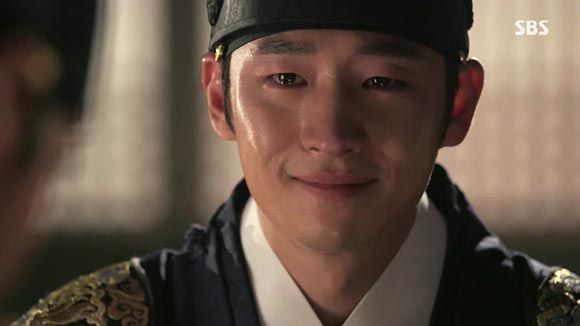
What a densely plotted episode, cramming in just about every emotion under the sun and making ’em all count. In the face of the greatest betrayal, our hero finds renewed love, respect, and loyalty—and then faces the prospect of having them torn away all over again. All in one hour, no less! (It’s a really jam-packed hour.)
SONG OF THE DAY
Kim Bum-soo – “눈물나는 내 사랑” (My tearful love) [ Download ]
Audio clip: Adobe Flash Player (version 9 or above) is required to play this audio clip. Download the latest version here. You also need to have JavaScript enabled in your browser.
EPISODE 12 RECAP
The morning after Sun realizes that his father signed the traitorous maengui document under the nickname Juk-pa, he sets out to see him wearing the grimmest of faces.
(Former) Prime Minister Kim Taek watches this with some satisfaction, having been the one to send the prince the anonymous Juk-pa tip. He calls it a warning to the king, essentially threatening to take him down with him. Nobody messes with Kim Taek and can expect to get away with it.
Before Sun has a chance to say anything, Yeongjo requests his company and takes him along to a visit to his mother’s grave. Yeongjo’s mother was a water maid who became Sukjong’s concubine (and the basis for the lead character in Dong-yi), and Yeongjo explains having been ashamed of that fact, as well as resentful. Had she remained a lowborn servant, that would have been one thing, but because she was elevated to such a lofty status in a strictly stratified society, Yeongjo suffered constant disdain for her origins.
He describes how miserable court life was for him, and the wonderful feeling of freedom when he left the palace and vowed never to return. However, he was made the heir to his brother, King Gyeongjong, who had no sons, and had to return. Even before Gyeongjong died (…because you killed him—at least in this drama’s truth), Yeongjo was treated as a greedy usurper and targeted for assassination.
“In order to survive, I had to become king,” he says. He looks quite earnest as he says that he wanted to truly be a good king for his people, but was so caught between factional warring that only wasted time, “and in the end all I did was age.” He wonders whether he’ll ever be able to enact the reform he’s worked so hard to craft, the equalized military tax law that was mentioned in a previous episode. Meant to ease the people’s burdens, it has met with opposition from the aristocracy, which would like to preserve its privileges to its own class.
It’s a skillful speech by Yeongjo, because his words are honest while at the same time completely calculated. He looks like the beleaguered benevolent king he wants to be, but we already know what turns his gears, and how good he is at emotional manipulation.
Sun, who has been watching his father this whole time with a mix of wariness and disillusionment, says that Yeongjo could still do those things—not only with this particular bit of legislation but with even bigger, more sweeping reforms. Yeongjo smiles and says that his son’s faith in him is a great support.
Yeongjo says he’d like to see through the reforms he’d begun, and asks for Sun’s help as he temporarily resumes power. So he’s putting the prince-regency on ice? Gulp. Sun says that he will of course support any just and fair orders, which is a very deliberate statement; I find it always so fascinating when these characters are having whole conversations in subtext (I’ll do what’s right… even if that’s not what you mean), particularly when one side is pretending not to notice, as Yeongjo does here. So the king draws his son into a hug, while Sun just stands stiffly, looking rather sick to his stomach.
Yeongjo makes his decision to return to politics known to the court, spurring uneasy reactions all around as to his intentions. The Soron faction speculates that Yeongjo must be feeling at risk to cut back on the prince’s power like this, and that the prince may have discovered the truth of Yeongjo’s ascension.
The Norons are just as shocked. They’d expected an immediate blowup when they sent the prince the Juk-pa information, so they surmise that Sun has not revealed what he knows to the king. Ex-prime minister Kim Taek grumbles at his slowness to act.
Princess Hyegyeong is understandably alarmed at the news that Sun has lost his power and demands an explanation. Sun wearily asks her to leave, not wanting to get into an argument today. Hyegyeong asks that he not do anything unbefitting a crown prince, because there are many people at court just waiting to pounce on him.
While Hyegyeong has at times been angry and argumentative, today her genuine concern comes across. She adds, “I say this not as your wife, but as the mother of our child San, now just three years old.” She pleads with him to be careful, because danger to him also endangers their son.
Mention of the boy has a noticeably sobering effect on Sun (…as though he needed more sobering). Advisor Chae says that he agrees with the princess’s concerns in regarding the king’s move as a direct threat to Sun. How could he give up what little power he had? Furthermore, if the king finds out he knows about Juk-pa, Sun is left completely vulnerable.
Sun tells his advisor of how the king took him to his mother’s grave and explained his reasons for wanting to see his law enacted. He says, “All that is true, but…” Aie, I want to tell him not to fall for his father’s tactics, even as I recognize the same mix of truth and persuasion to his words.
Sun speaks of his father in terms of the facets that others don’t see—the man who enjoys extremely frugal, simple ways and absorbs himself in his work. That’s the man who spoke of working toward this reform to improve the lives of his people.
He wonders what it would have been like to have been born not the king’s son but his brother (thus subject to suspicions in a way a direct heir would not be), and asks if they can’t defer judgment for a while. He gets choked up as he says he wants to wait a little, just until Yeongjo completes that law.
The king calls Sun to consult with him over matters of a new prime minister, since Kim Taek has been ousted. He shows him his top candidates and goes over their merits, asking Sun for his input and gently guiding him toward what he sees as the best selection. He settles upon the Soron leader, supposing that it’s their turn since the last one was Noron, and thus decides the matter.
It’s a lovely tender interaction, and as Yeongjo discusses the candidates thoughtfully, Sun regards him with teary eyes and a renewal of respect and love. You get the sense that it’s these tiny moments, however brief, that Sun clings to in darker moments.
With the royals’ behavior unclear, the politicians puzzle over what they’re planning. For now, the Noron camp decides on a wait-and-see approach.
Yeongjo announces the new prime minister to his council, and does some rearranging of the offices. Teacher Park is made a minister (of taxation), and he and War Minister Hong are assigned to a new department that will head up Yeongjo’s reform. Sun looks almost unbearably proud of his father, and Yeongjo looks satisfied as well.
And so the inner circle (the king, prince, Teacher Park, War Minister Hong) gets to work on the military tax reform project. The crux of the matter is that tax burdens are unequal across the classes, with the yangban (aristocracy) often exempt from paying. This places an unfairly heavy burden upon the commoners, who are struggling to survive as it is, and Yeongjo wants to level the taxation rules and cut their taxes in half. That has the yangbans in an uproar, because in their eyes the very idea of “all men are equal” is dangerous and uncivilized, and they have a vested interest in keeping their class privileges to themselves.
Yeongjo declares that he will directly address his people on the matter, and arranges for gatherings where they are allowed to come and speak to him in person. Yeongjo doesn’t exhibit any royal airs as he just goes right up to the poor folk, crouching on the ground before them and holding them as they cry and speak of their hardships. Sun watches in some surprise and awe, deeply affected by the sight.
The yangban politicians aren’t about to just sit back and let the king outmaneuver them in the court of public opinion, however, and hatch plans of their own. Kim Taek takes the lead, naturally.
With the tax reform in motion, Advisor Chae gently reminds Sun that the time he asked for is coming to a close. Has he decided what to do about his father? Does he intend to cover up the 1724 assassination plot?
Sun answers no, but tellingly he has physical difficulty saying the word “crime” in reference to his father. Still, they require more concrete evidence before acting—what they need is the original maengui document. The likelihood that it’s in the hands of Kim Taek or his two cronies is high, but they need some kind of access into their inner circle. There’s one way in, but thus far their attempts to enlist the upright Min Woo-sub have gone unanswered (Min Woo-sub is the former policeman who was forced to resign by his father, one of the Noron cronies).
The Norons are aware that Min Woo-sub is a potential vulnerability, and his father is nervous about that fact, but crafty Kim Taek sees a way to turn that into an advantage. He goes to see Min Woo-sub and persuades him by talking his language of ideals and righteousness—how the country belongs to the people, and that the politicians are stewards of the people, and that they are more capable of helping the people than the king himself. What has the king done for the country, after all?
So he tells Min Woo-sub to accept the prince’s request to enter into his guard service—and once in place, he is to watch Sun and await further instructions. If he does a good job, his father will benefit, and isn’t it his duty to help his father? Let’s just say: (1) Kim Taek is a sly and smart mofo, and (2) now I just want Min Woo-sub and Sun to go off being nobly idealistic BFFs, politics be damned.
Meanwhile, the Norons must hide the maengui again, and Kim Taek has the document literally bound into the cover of a book, which is stored in the palace library. It’s darkest underneath the lamp, after all.
And so, Min Woo-sub reports for duty, and Sun is so pleased to welcome him that it hurts a little. He thinks he can use Min as a double agent for his side, but his father is counting on him being a double agent for the Norons, and, well, we’ve seen what blood ties do to a person in this drama.
Yeongjo and Sun head out to make another appearance with the commoners, only to have Teacher Park kicking up a huge fuss in front of the gate to try to prevent it. He begs the king to head back another day and kneels in front of the doors, but is forcibly removed.
There in the front yard, instead of commoners are rows and rows of yangbans and scholars, loudly protesting the king’s reforms. They demand that he rescind his changes to the tax law, arguing that he cannot disrupt order or declare the lowborns as equal to their betters. It’s repugnant logic, but in their rhetoric, this is tantamount to anarchy.
Their language grows increasingly strident as they dramatically produce axes next to the coffins laid out in the yard, essentially saying, Over my dead body. Then they go so far as to question Yeongjo’s own right to rule, saying that passing his reforms would make him a tyrant to barbarians.
That spikes Yeongjo’s temper and he sputters in rage. He has to be held back from launching himself at the offending yangban, and then collapses to the ground from the shock. Sun rushes to his father’s side, then turns his own fury on the crowd. Spitting contempt, he says he will remember every one of them for their refusal to work with the people of this country.
Sun has to convince his father to leave the assembly, reminding him of his own words that a ruler must know when to step back. Yeongjo agrees, and Sun insists on carrying his father back to the palace on his back.
Today’s display was the Norons’ work, of course, and the protesting yangban are brought before Kim Taek, who congratulates them for a job well done.
Meanwhile, Yeongjo recovers in bed with Sun at his side, sighing that his reforms will be more difficult to pass than he had hoped. He recognizes that alienating the yangban only makes things more difficult, and is eager to get back to work to find a solution to the predicament.
To that end, Yeongjo comes to a compromise, deciding that he will cut the commoners’ tax burden and make up for the difference by lowering his own budget and removing certain royal tax exemptions.
Ji-dam makes a reappearance (wow, I’d almost forgotten about her) as she finds herself being followed in the streets and is saved by the intervention of Chul-joo. Her follower is, surprisingly, not a gangster or assassin but a high-ranking Soron politician, and he’s here to see her father.
We’ve seen the Sorons frequently but haven’t felt a need to point them out by name yet, but I have a feeling they’re about to get more significant to the story. This is Shin Chi-woon, the most hotheaded of the Soron bunch, and he apparently goes way back with Ji-dam’s dad—all the way back to a failed rebellion plot 26 years ago. Innnnteresting.
Revisiting their past has Dad clearly on edge, but Shin Chi-woon has a reason for coming here. He reminds Dad of the uncomfortable truth that they’d both ditched their colleagues and ran from the fight—they came away with their lives, but gave up on the possibility of changing their world. (The Soron rebellion of 1728 was four years into Yeongjo’s reign and accused him of killing the previous king.)
Shin Chi-woon produces a book whose contents have Dad gaping in alarm. It’s the diary of an artist, and it contains highly dangerous, damning information about the king. We don’t know its exact contents, but it’s safe to presume that it’s everything we already know to be true that the maengui confirms. Reminding him of their old abandoned hopes, Shin presses the book upon Dad, asking him to copy and distribute it.
Sun continues to tend to his father, who ruefully refers to himself as pitiful. But Sun assures his father this is only the beginning, having been inspired and encouraged by his father’s teachings on equality. With eyes shining in hope, Sun declares that he will take the character “kyun,” the same character used in Yeongjo’s reform policy title, and harbor its meaning in his heart. Furthermore, once he becomes ruler, he will adopt the “kyun” ethos as his official policy. He vows to make a better equality law and a better Joseon. It’s so touching, and Yeongjo is moved.
This time when Yeongjo embraces his son, with tears in his eyes, Sun reciprocates the hug. And when Sun leaves, Yeongjo doesn’t revert to another face, as he so often has, but smiles contentedly at Sun’s declaration of adopting equality as his policy.
But then he’s struck with a thought that brings a worried tremor to his voice as he asks what would happen if Sun knew he had signed the maengui. Would he call his father’s words a lie and reject them wholesale? He fears for the day that Sun might learn the truth, and hopes he’ll never learn that he is Juk-pa.
Sun is caught in a dilemma of his own, drinking with Advisor Chae in his chamber, melancholy and full of regrets. He should have let the first murder slide, he says, even if Heung-bok was his friend. Or he should have scoffed at Ji-dam’s claims. Or he should have clung to the idea of the maengui being lies. Or he should not have learned of Juk-pa.
Looking lost, he tells his advisor, “I do not know now what I should do about my father.”
Ji-dam’s dad, meanwhile, struggles with the decision to publish that book. He wants to not care and steer clear of any trouble, but Shin Chi-woon’s words ring in his ears, about how doing nothing only passes along the troubles to the next generation, for his daughter to inherit. The people must know the truth.
And so, Dad gets to work copying the book, telling his staff to take particular care to keep it from Ji-dam. Which is effective for about two seconds, given Ji-dam’s nose for sniffing out suspicious activity. With the aid of Chul-joo’s gang, the fresh copies are distributed through the booklending network, and in no time it’s everywhere, setting the public on fire. And just when Yeongjo was enjoying a surge of popularity, thanks to his reforms.
Even so, the Soron politicians declare that the king and the rival Norons are guilty of crimes that must be punished. Plans for a rebellion are already underway.
Ji-dam manages to get her hands on a copy of the book, and worries for the prince. If he knows, and he must know by now, he must be hurting and afraid, she thinks.
The book finds itself in a number of palace servants’ hands, which are discovered and brought to the king’s attention. Yeongjo is positively apoplectic. His fury is so overwhelming that it catapults him far past the line of reason, and he orders all the copies gathered and burned. Everyone found in possession of a book is to be killed.
Worked up, he expands the order to include the publisher and every single person who read the book—round them up now and kill every one of them.
Sun bursts in to protest, urging his father to rescind his order. He attempts logic, arguing that even if the books are pure libel, he cannot punish that crime with death. Furthermore, even if he killed everybody he wanted, the problem would not be solved. He pleads with Yeongjo to put a stop to this and harshly warns the eunuch not to convey the message.
Yeongjo will not be reasnoed with, and Sun’s tone changes as he asks meaningfully, “WHY? What is the reason you fear this book so much? Is it because… everything written here is true?”
Yeongjo’s tone changes too, as he asks what he means, fumbling for words before raging back that Sun has no basis for asking this.
“Juk-pa.” Ohhh snap. Sun utters the name that his father stiffening in alarm, and then continues by saying that there was a document signed thirty years ago, which bore the name Juk-pa—was that his father’s signature?
COMMENTS
Ooof, well there’s no backing away from this one. There were scenes in earlier episodes that turned out to be fantasy confrontations, and each time that happened I was both exasperated and relieved—exasperated because fakeouts suck, but relieved because I didn’t know if we could handle the fallout. Or perhaps more importantly, I didn’t know if Sun could.
But now that the moment is upon us (…I’m almost positive—this can’t be a fakeout, or at least had better not be), I do feel like we’re at the point where this clash feels right, and earned. We’ve explored the potential outcomes of the confrontation from multiple angles, and from both Yeongjo’s and Sun’s sides, with both men feeling torn and anxious about how to approach the truth. At this point, there’s nowhere to go but forward, even if forward is right into a shitstorm of epic proportions.
I thought the previous episode was going to mark the height of Sun’s despair, because that episode showed us the exact moment of his disillusionment. But I found this episode even more intensely fraught with conflict, because Sun’s struggle to know how to use this information is possibly more compelling than merely withholding it from him. Of course it’s at this fork in the road that Yeongjo shows him (and us) exactly why he merits this angst in the first place, because now we see directly what he is like when he’s being an effective ruler, working for noble reasons.
What feels extra tragic about his situation is that when he resumes the role of acting king, we actually do see him being effective and authoritative. Yeongjo is always complaining about being hamstrung by politics, and while he is in no way wrong about it, he himself demonstrates that he can still maneuver politics and push forward his policies. Yes, he has to compromise, but his tax reform was still a huge improvement to the plight of his people than had he sat back and done nothing.
For instance, his decision to speak with the commoners directly was a particularly shrewd bit of politicking, because it enabled Yeongjo to position himself as the benevolent king who wants to help the people. And thus any opposition to these reforms would be blamed on his detractors, aka the yangban elite, and this in turn would help sway public opinion into pushing forward his reforms… which is really what he wanted all along anyway. He’s being manipulative in this case for all the right reasons (and this is consistent with historical accounts of these proceedings).
It was also a nice touch for the drama to begin this stretch of the story by taking us to Yeongjo’s mother’s grave, anchoring for us the rationale driving the king. The historical Yeongjo did have an affinity for his commoner subjects, and it’s reasonable to conclude that his mother had a great deal to do with this. And in bringing Sun with him to that grave, he also gives Sun a glimpse into that part of his emotional background, which makes it that much harder for Sun to know what to do now.
This is why I particularly reacted to Sun’s reactions in the opening scene at the grave, because Sun seems to regard his father with frustration as he points out that Yeongjo could totally do the things he wants, and he could do them legally and wisely to boot. So it’s such a shame about that maengui, which first of all makes him a criminal, but second of all is as effective a shackle on Yeongjo psychologically as a physical one would be. I love the way Sun has to deal with a new side of his conflict now knowing about his father’s complicity in the regicide, because it’s so much more suspenseful and angst-ridden to have him react with all the cards on the table. It was one thing to watch him struggling while we knew more than he did, but now his eyes are opened, and that presents a new set of ethical questions for him. It’s enough to make him long for blindness, but that’s the thing about Pandora’s box—you forfeit the ability to close it once you’ve sprung the latch.
RELATED POSTS
Tags: featured, Han Seok-kyu, Kim Yoo-jung, Lee Je-hoon, Park Eun-bin, Secret Door
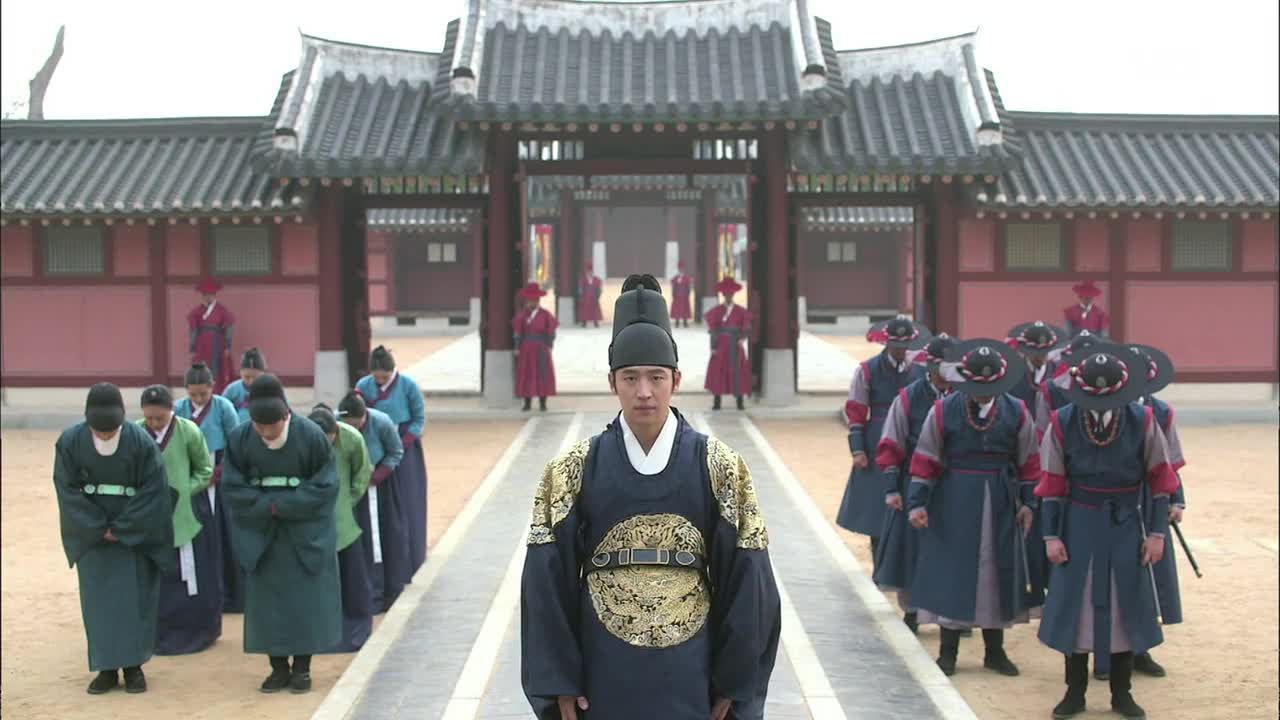
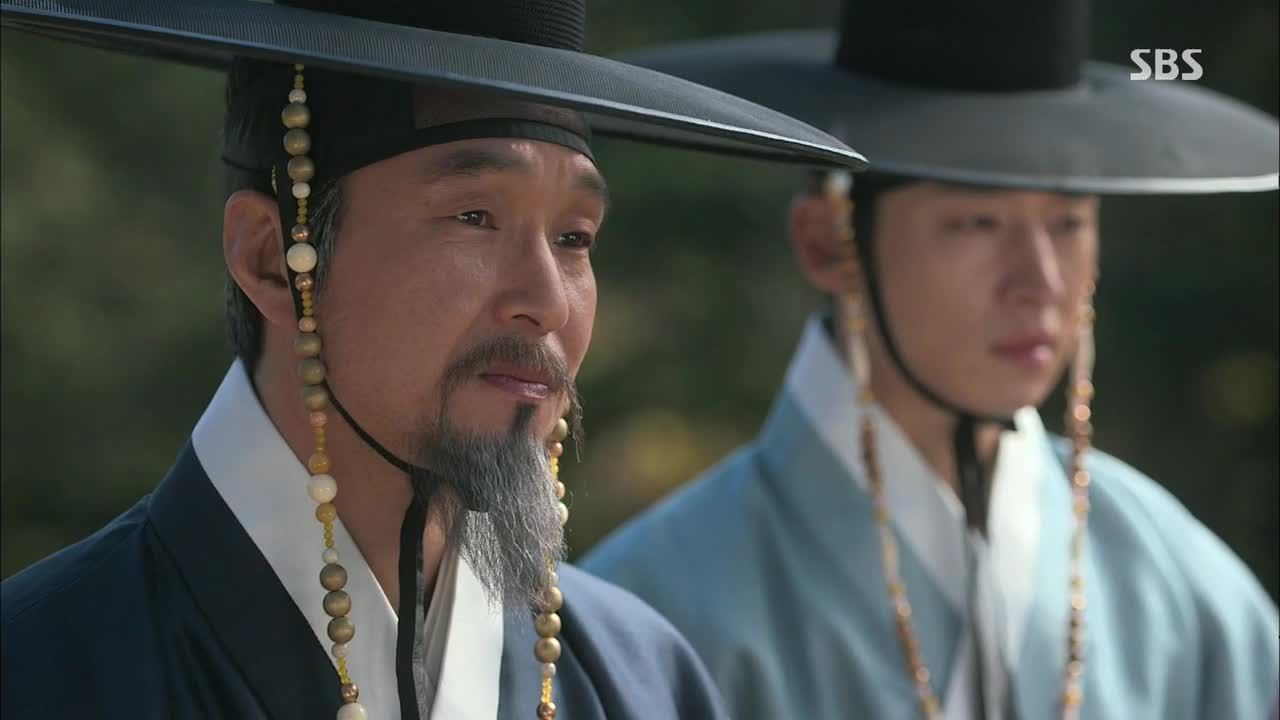
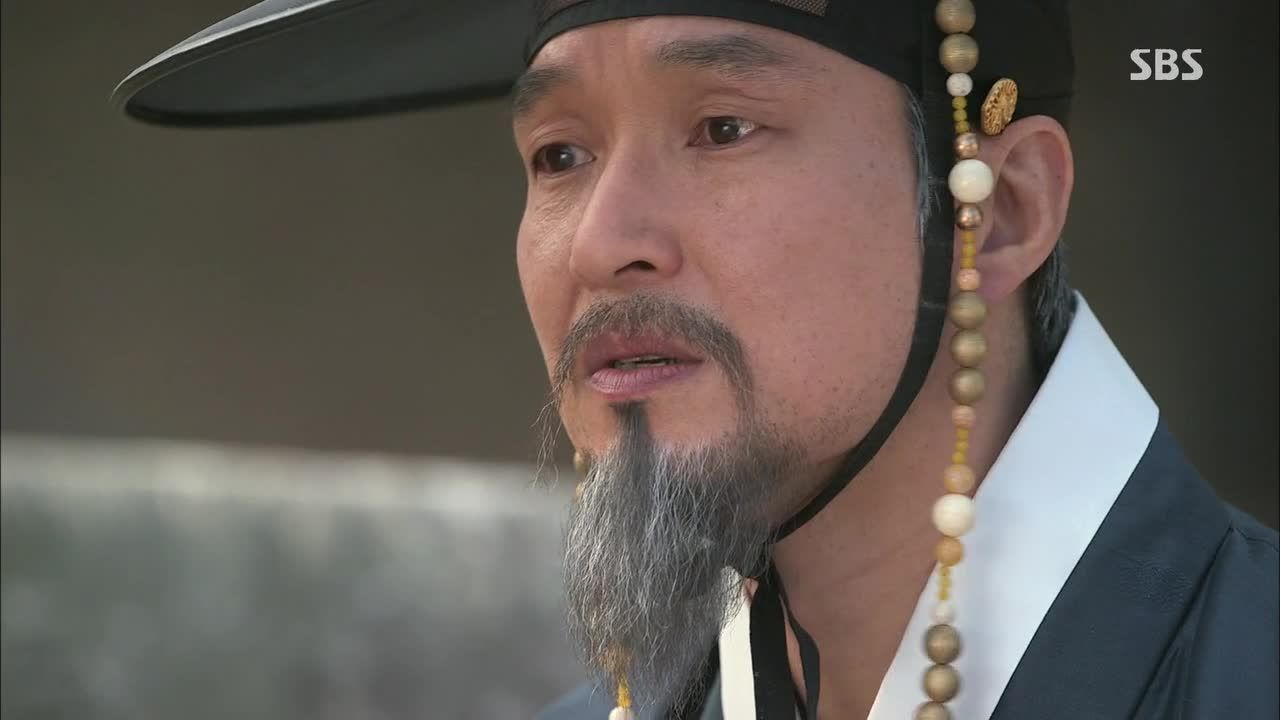
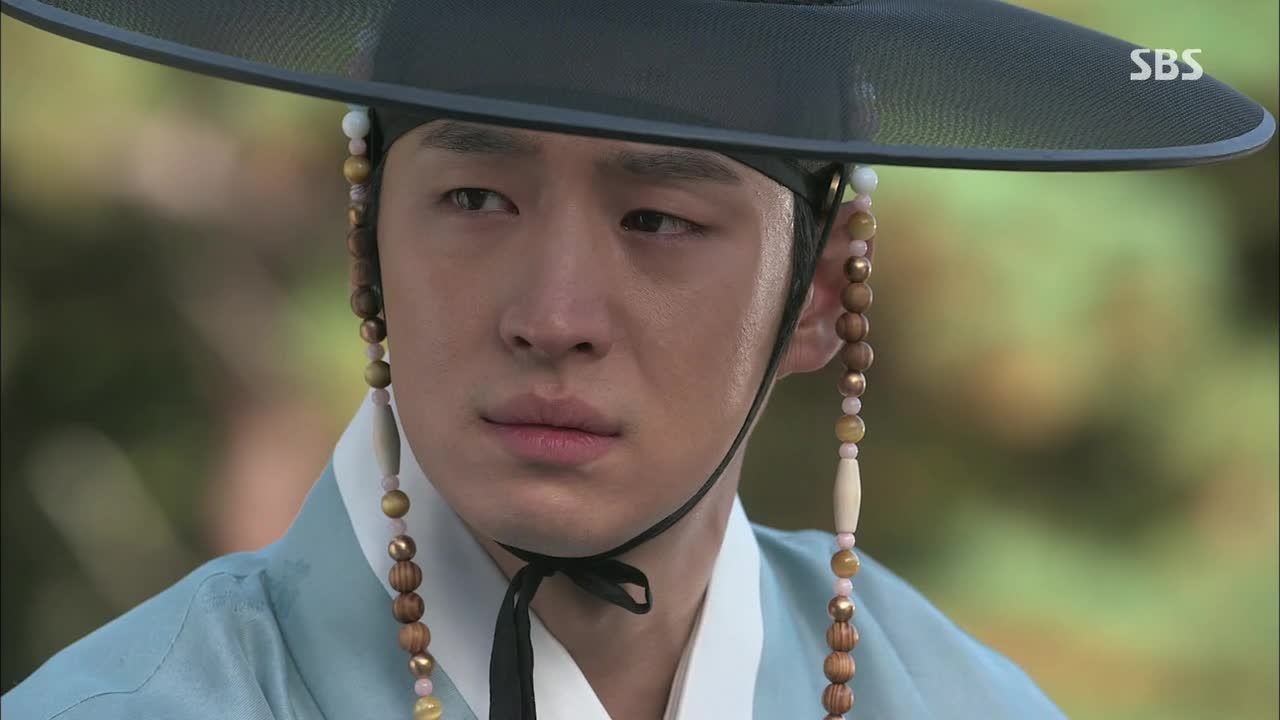
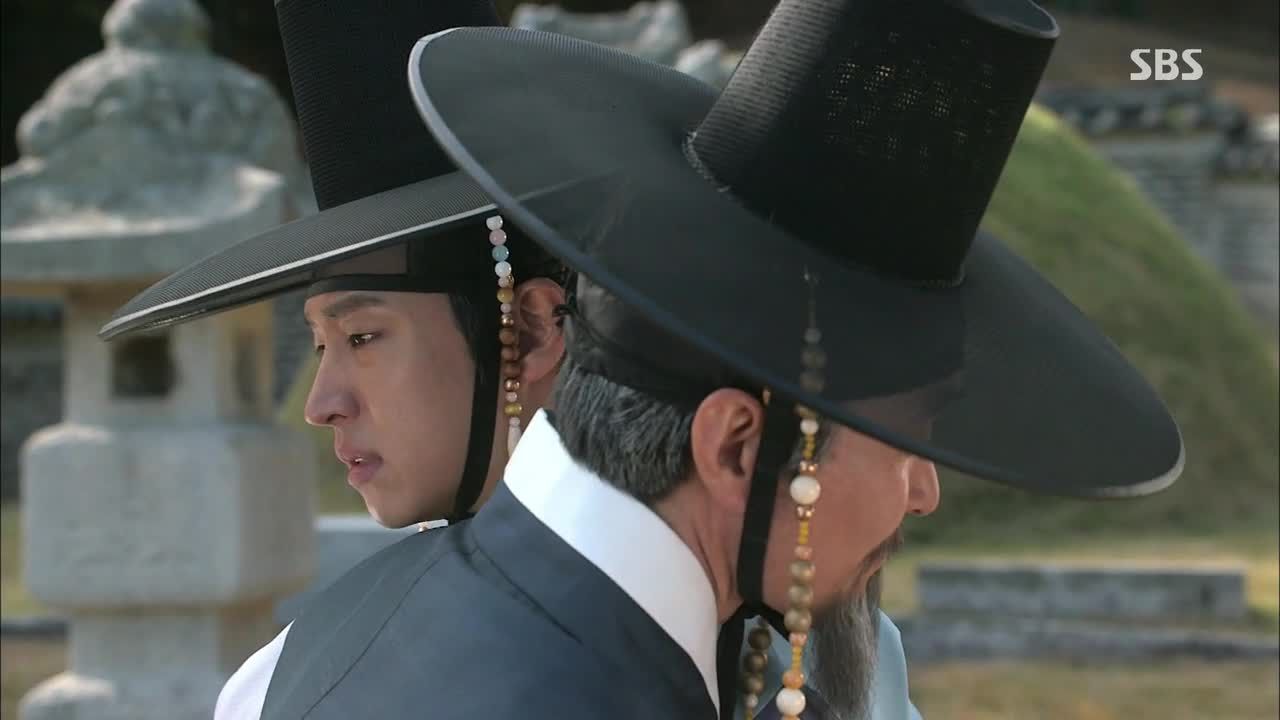
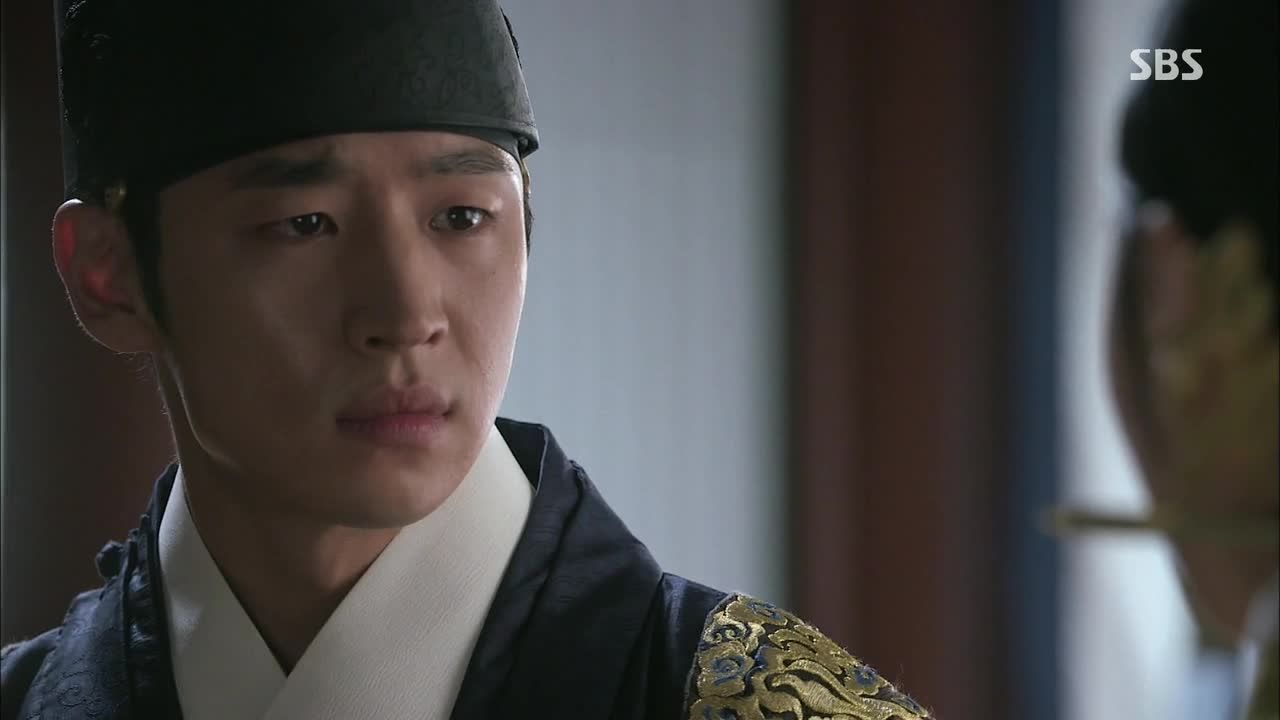
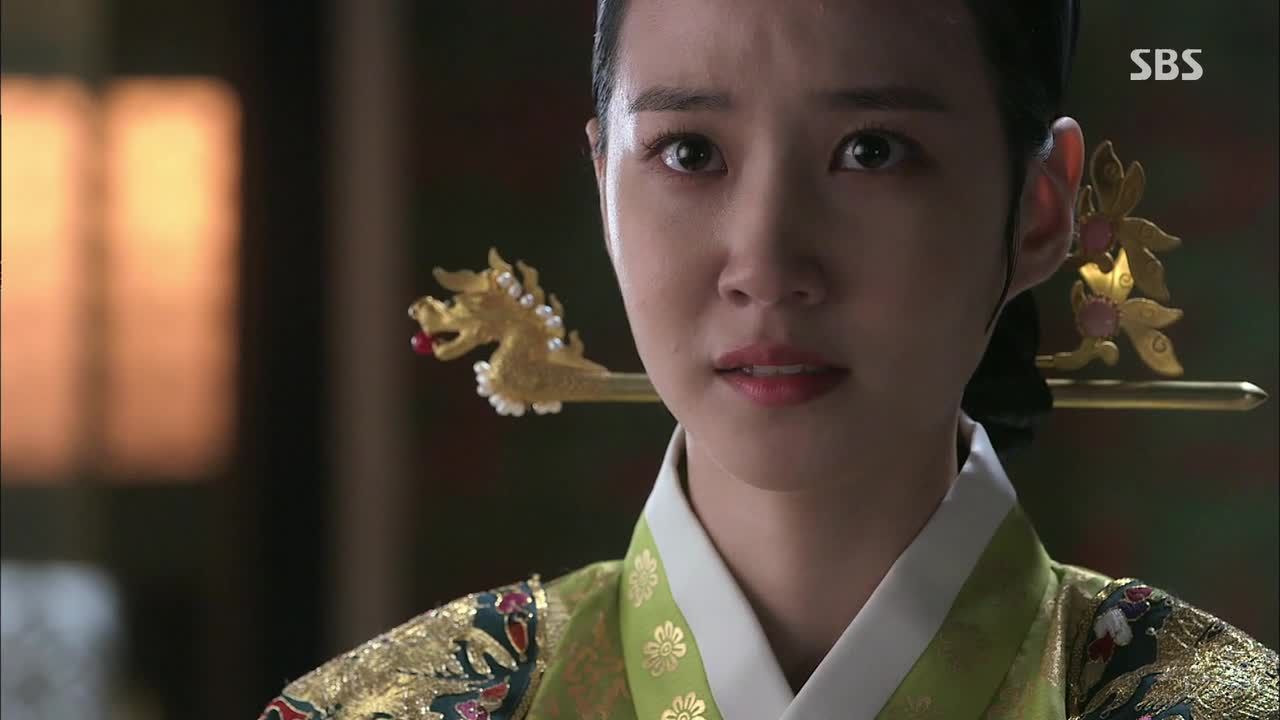
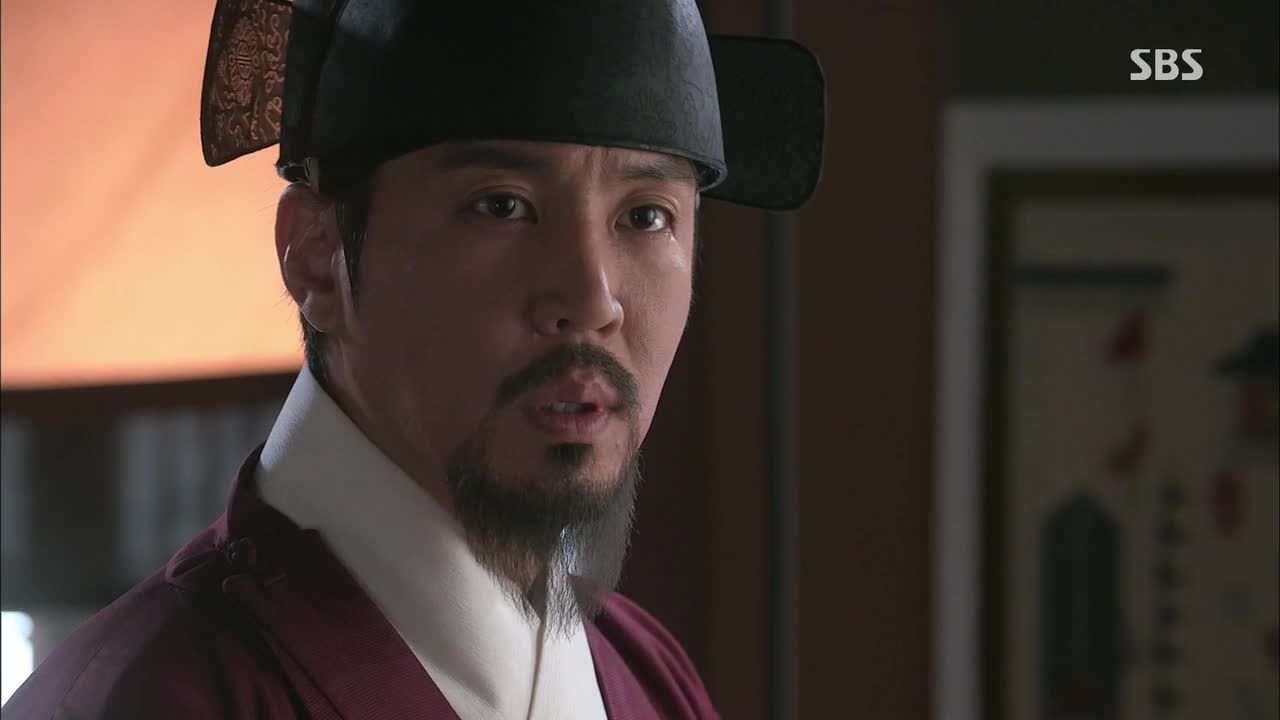
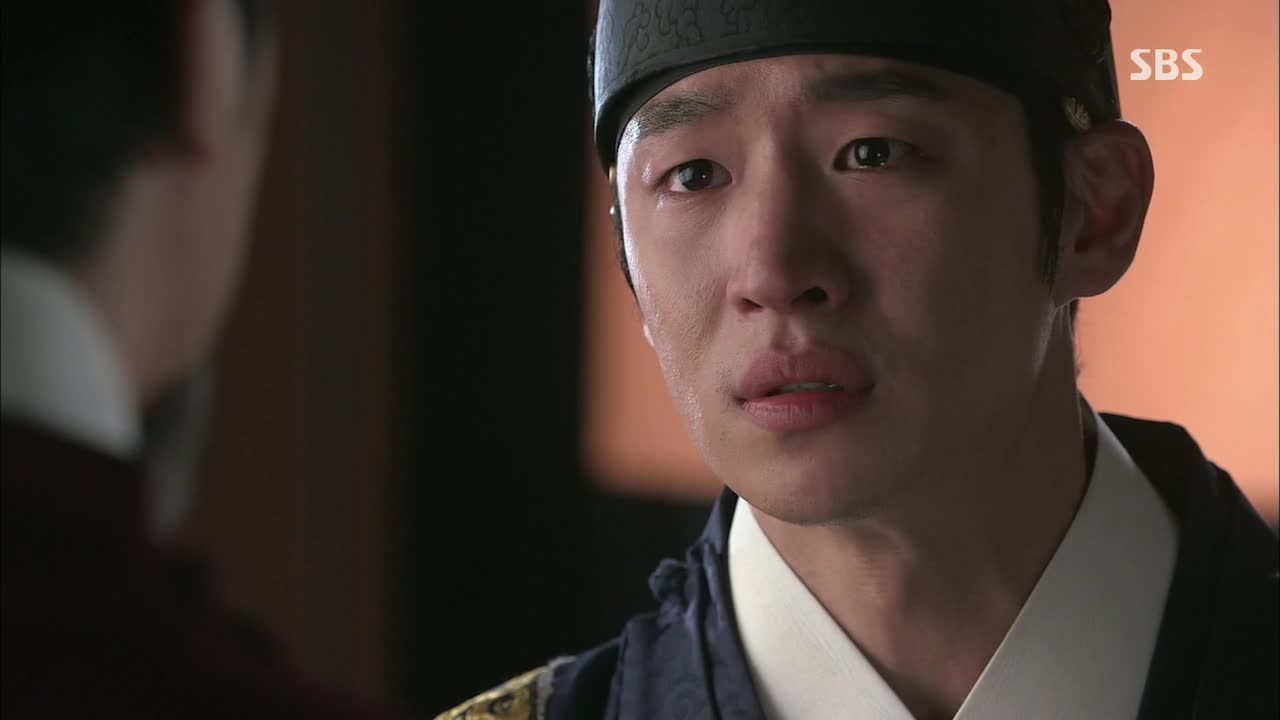
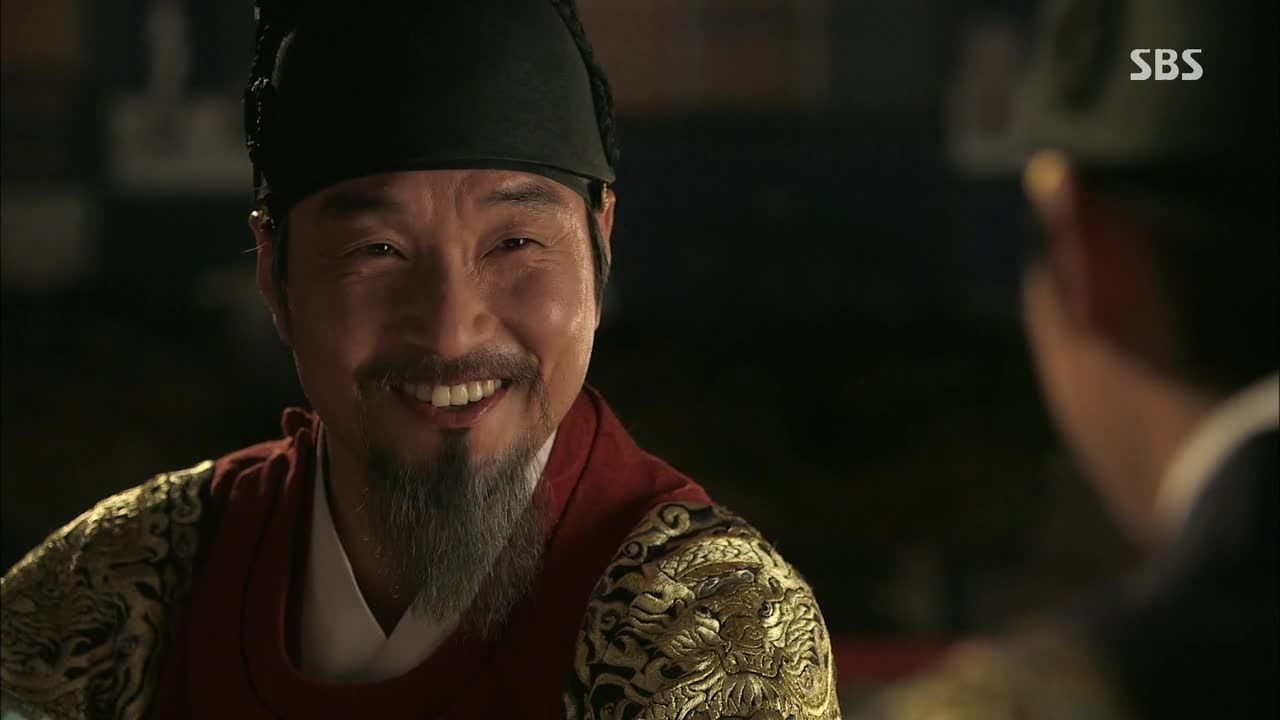
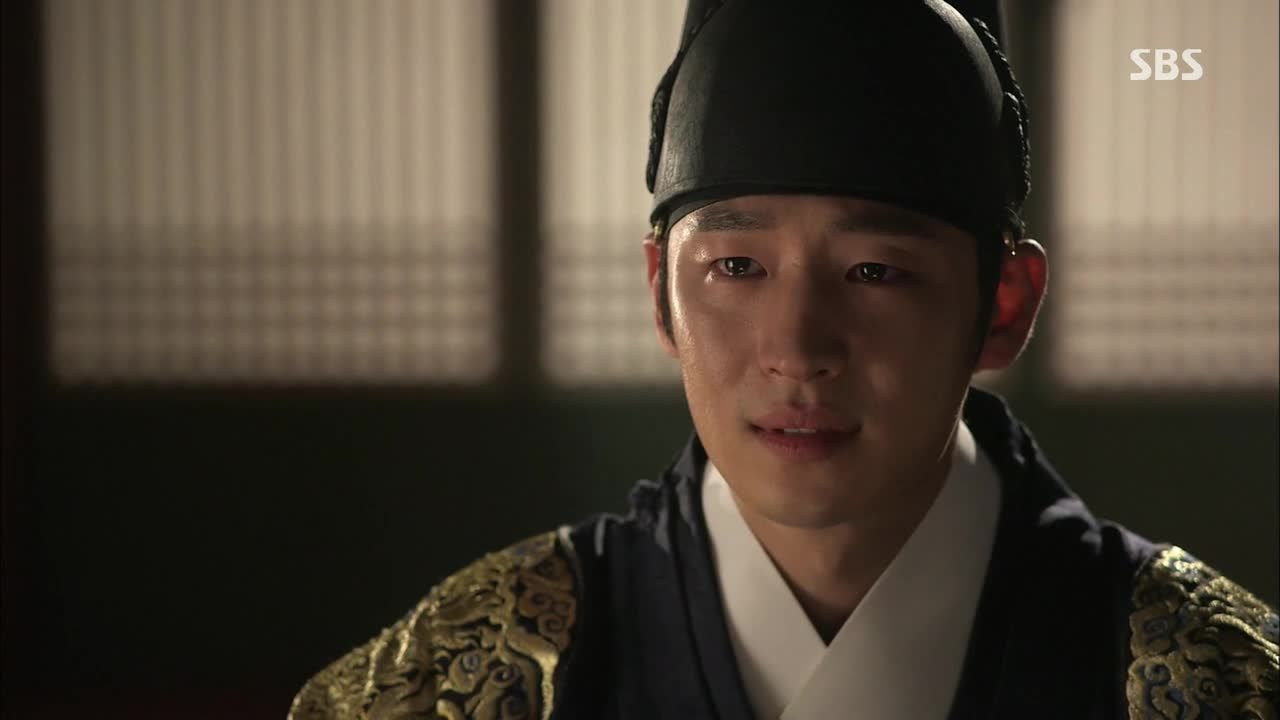
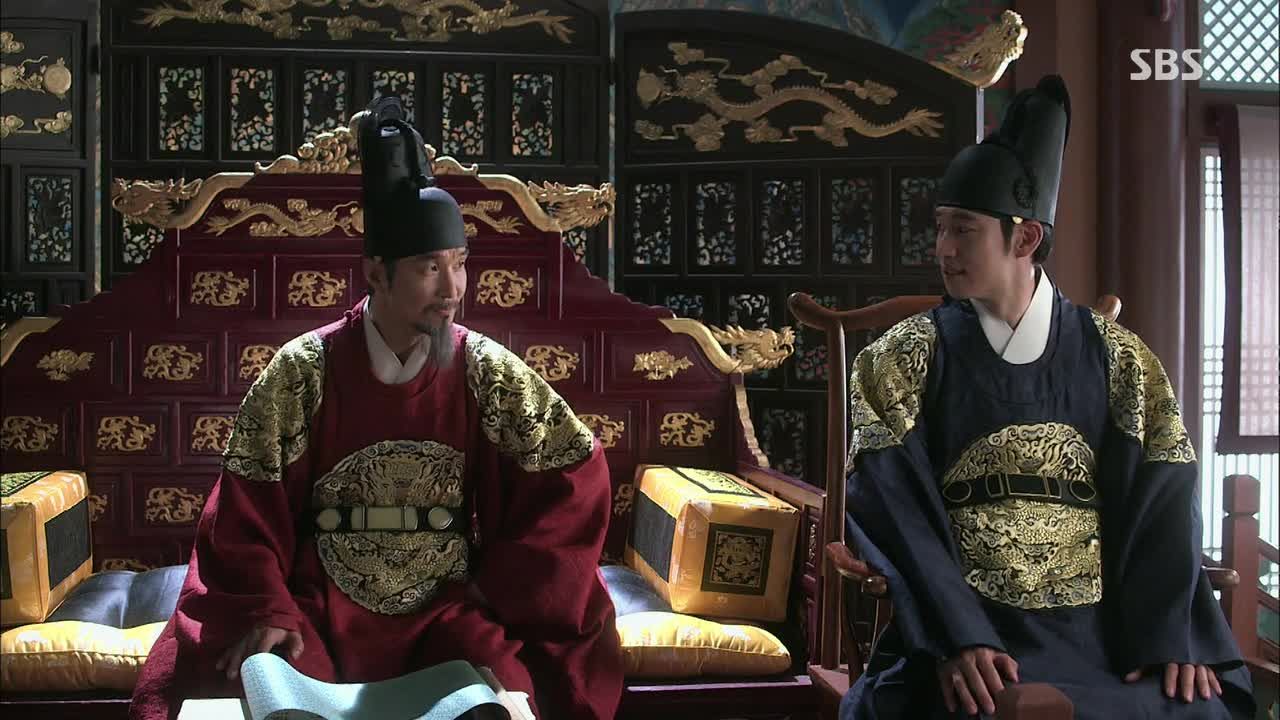
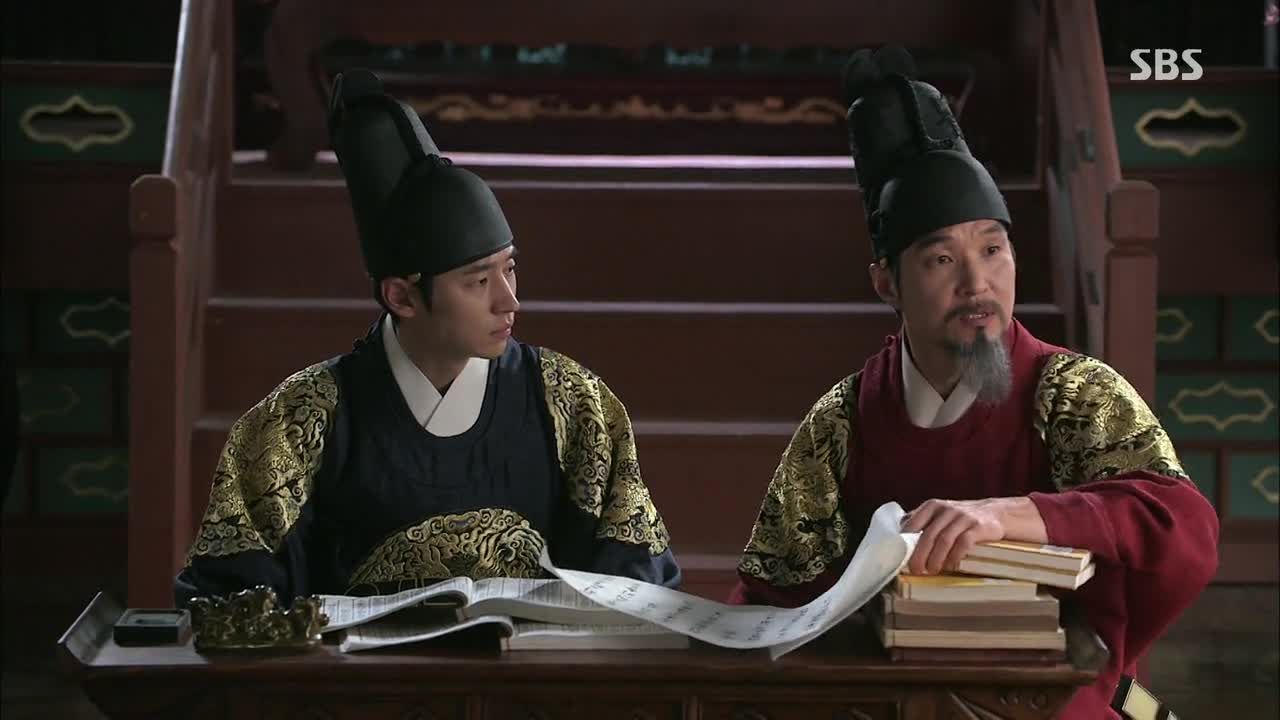
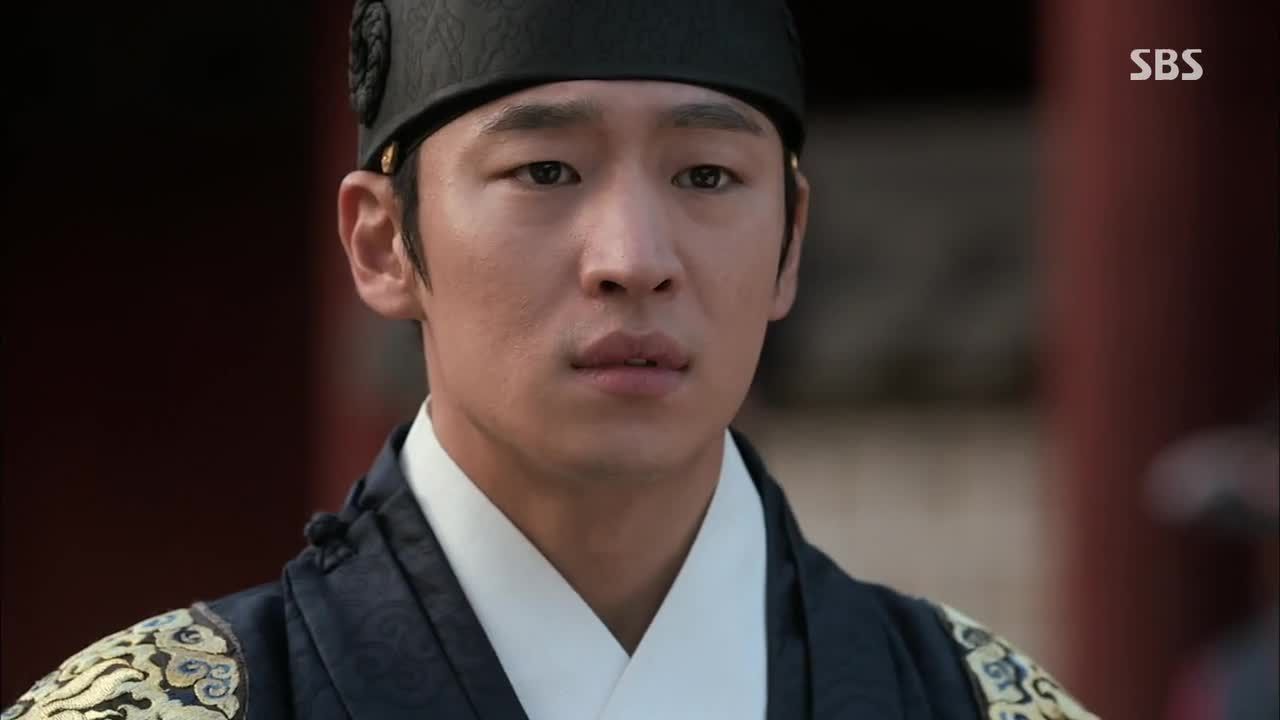

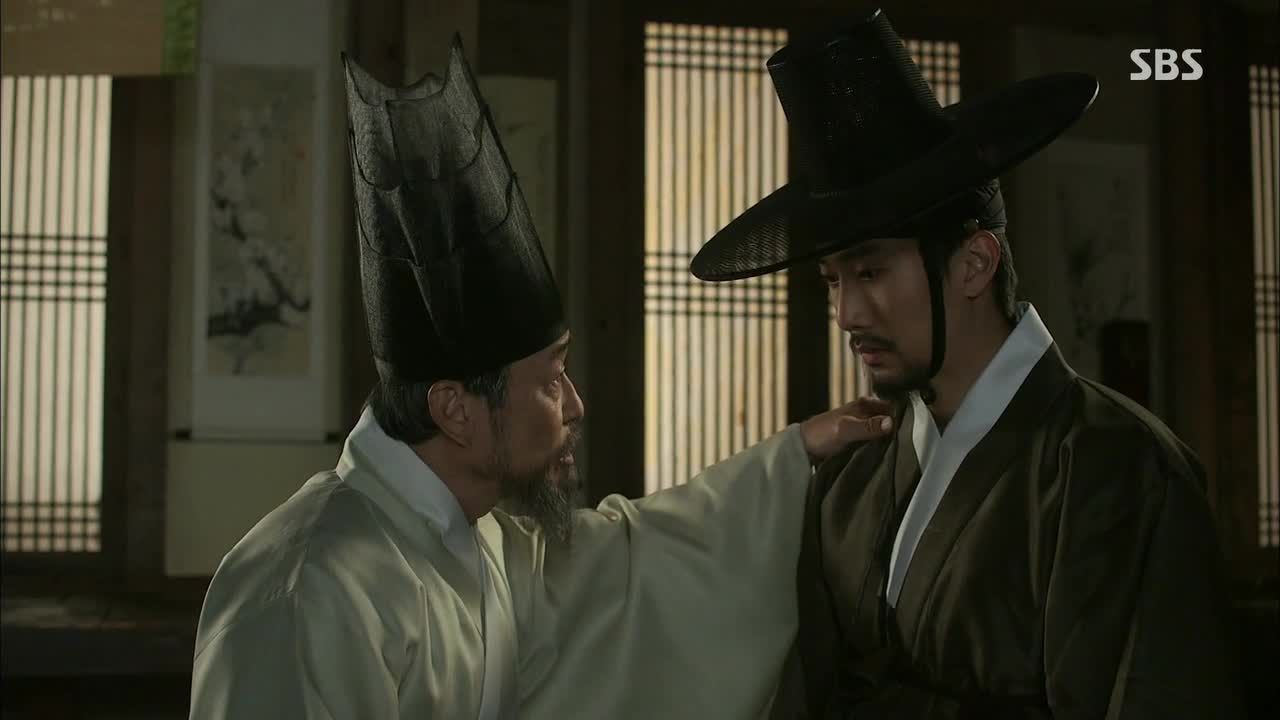
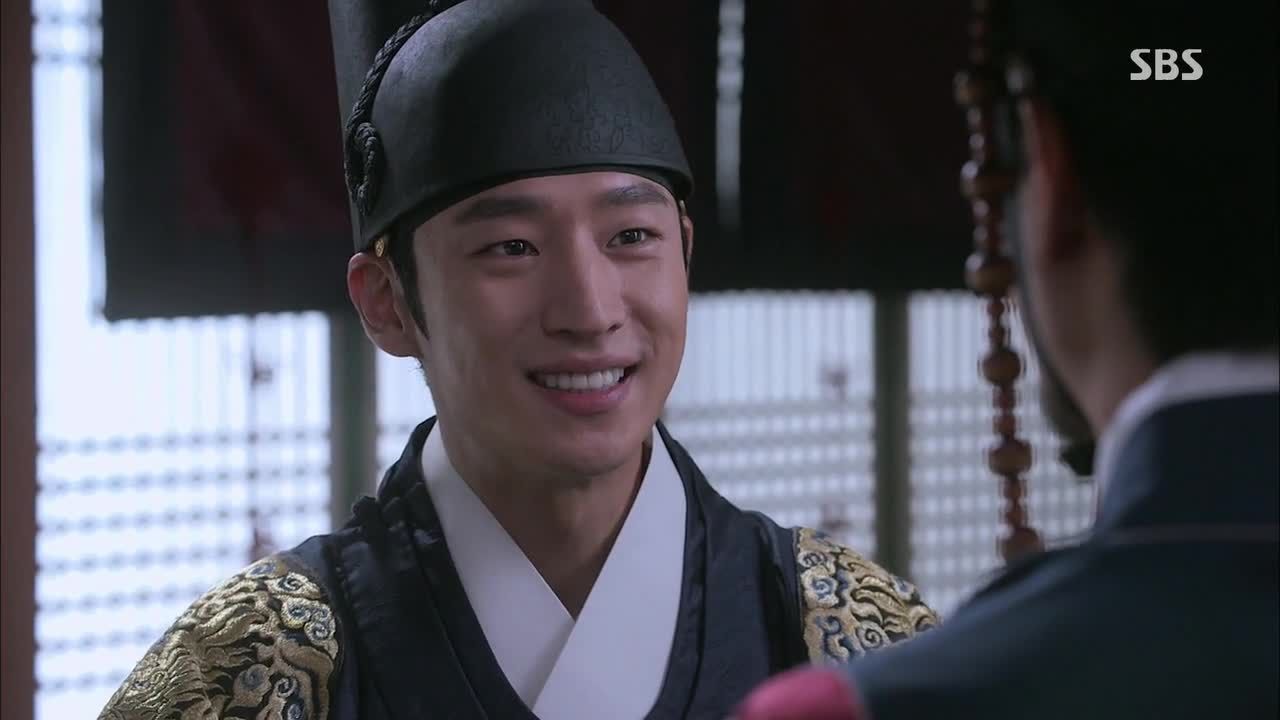
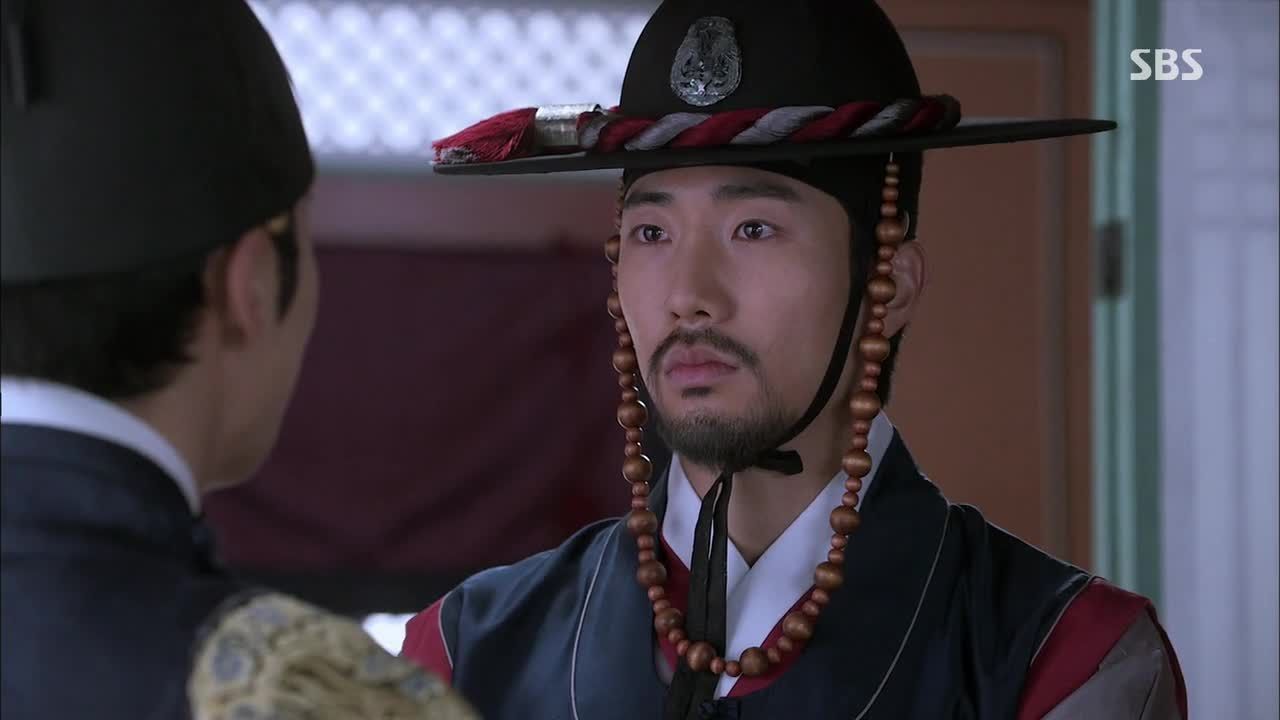

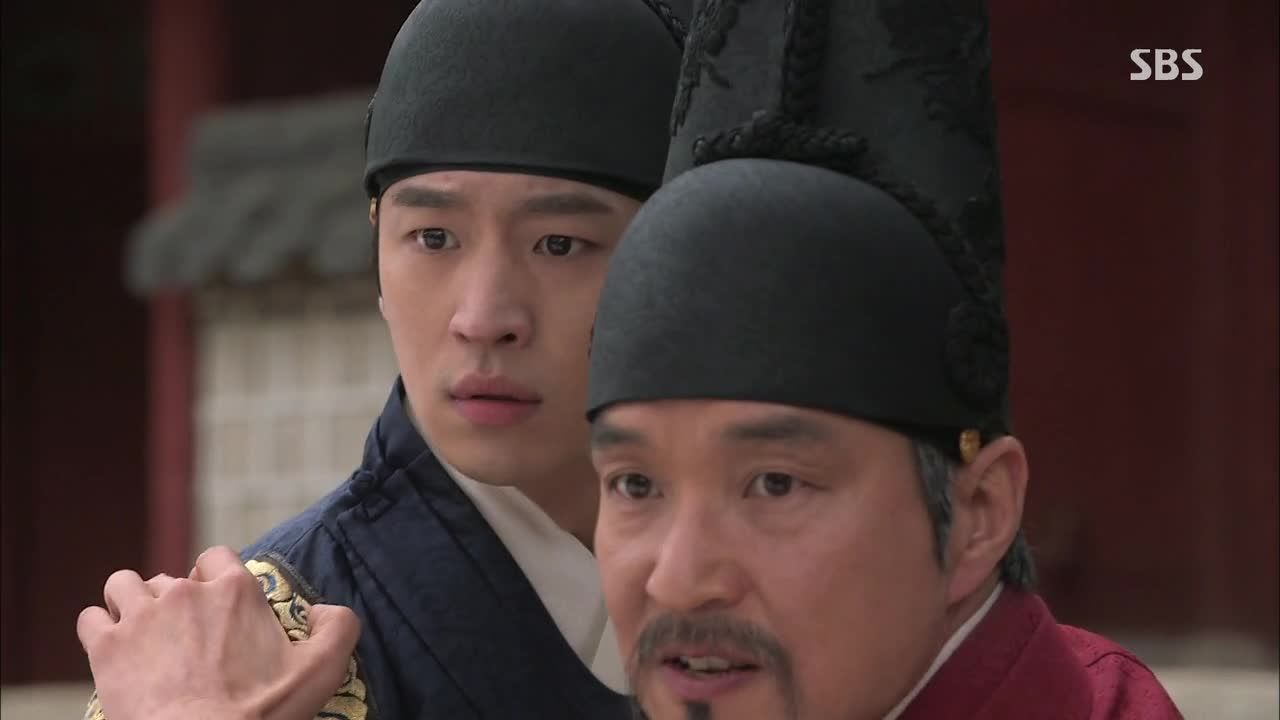
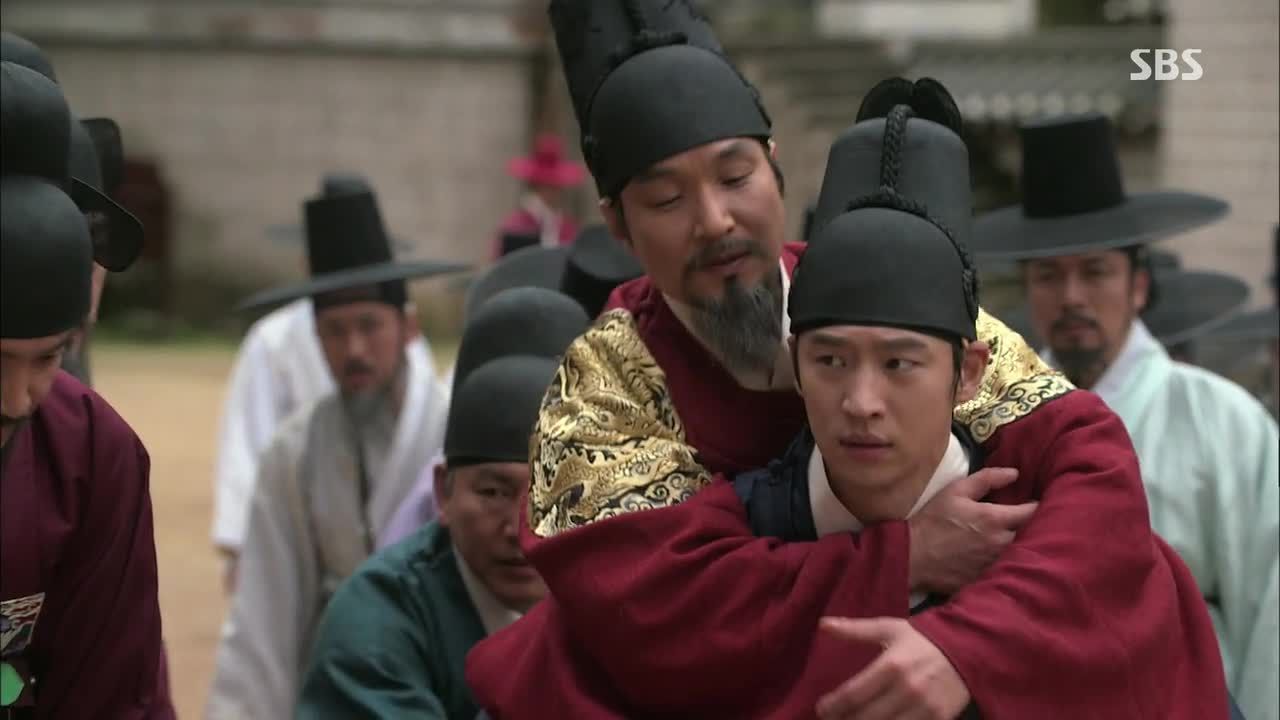
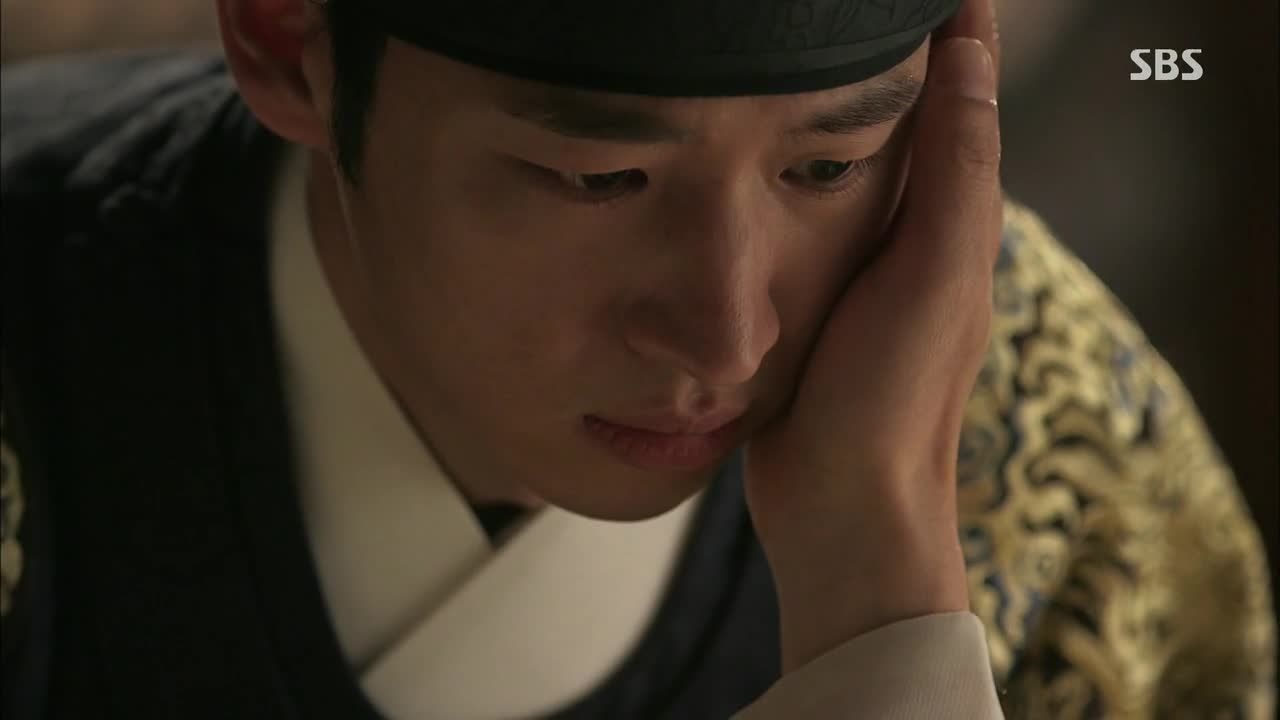
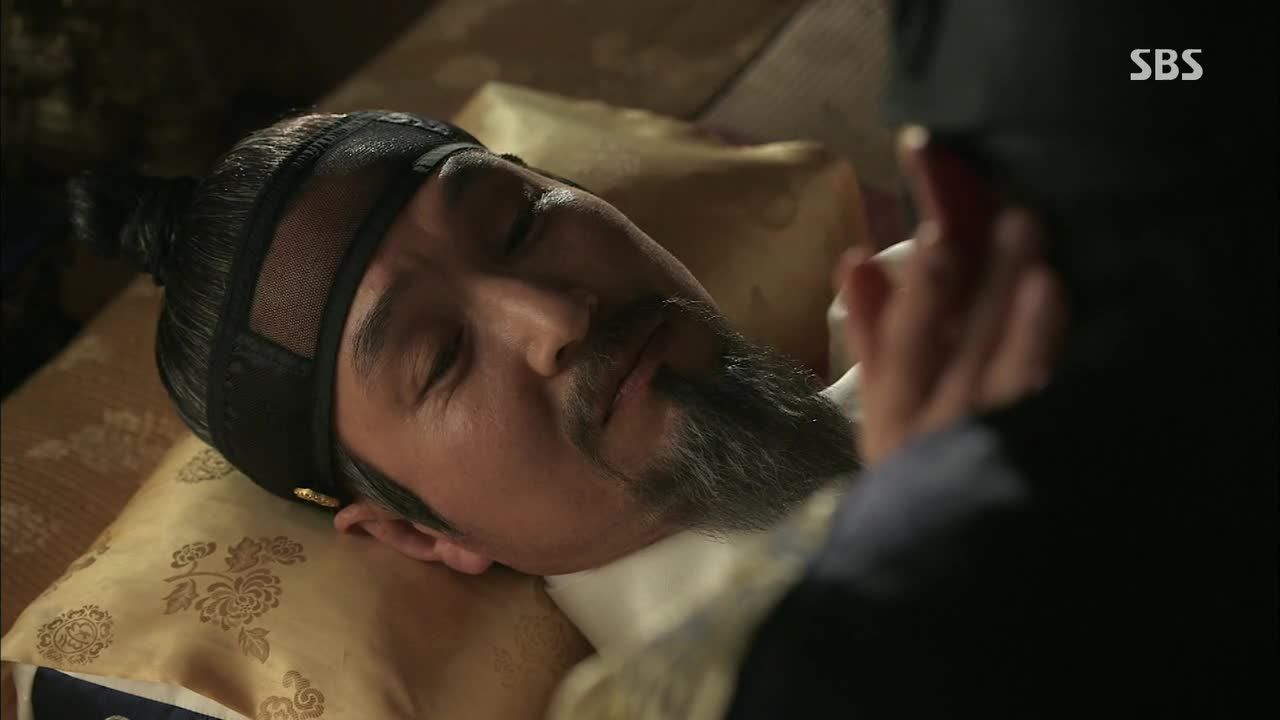
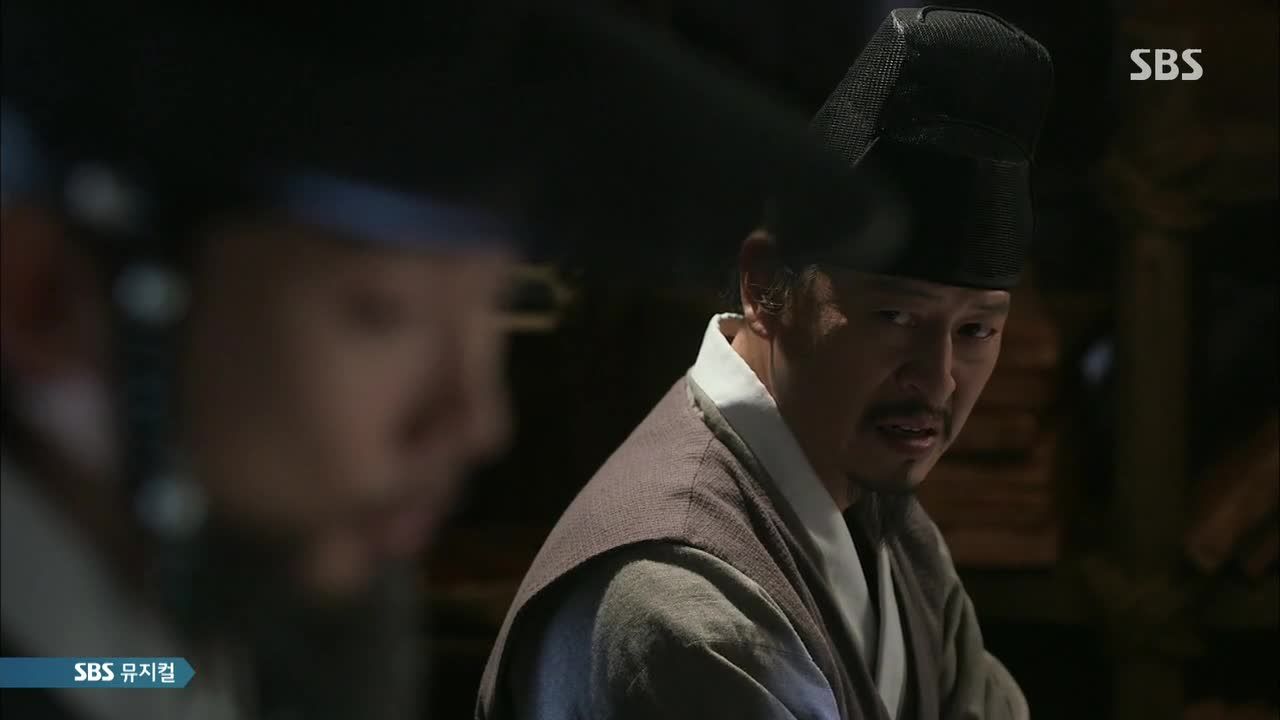
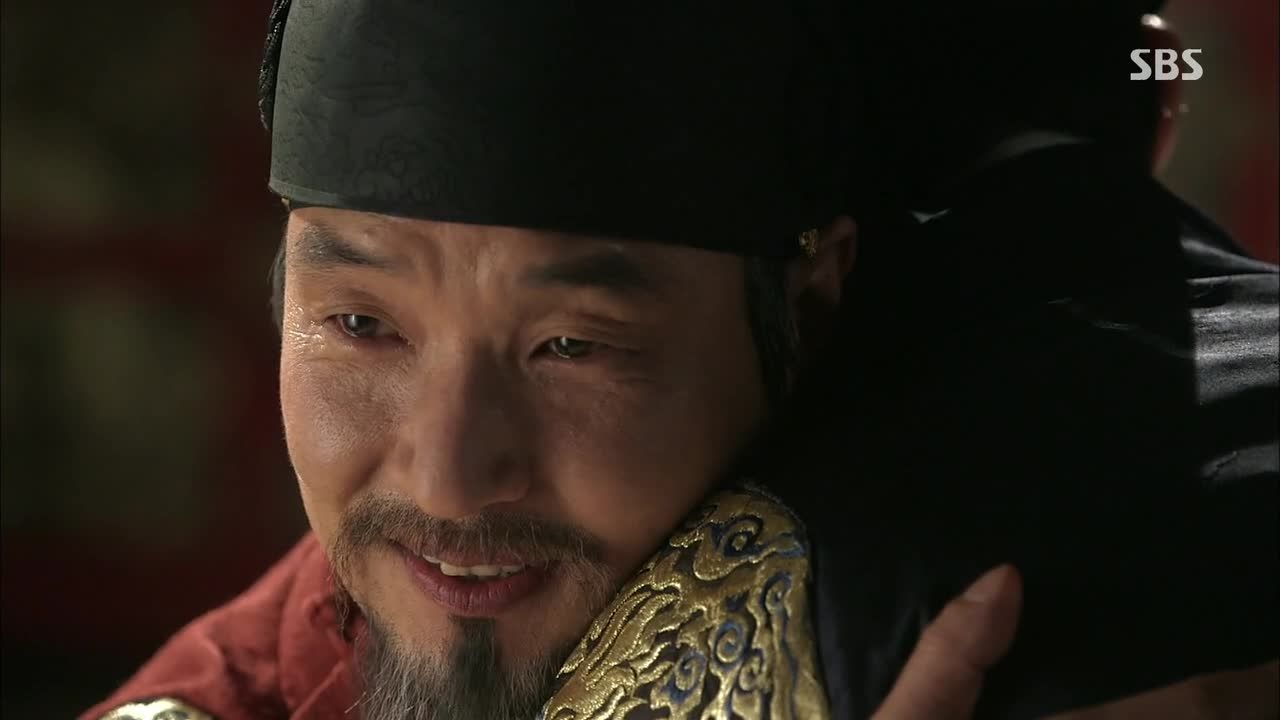
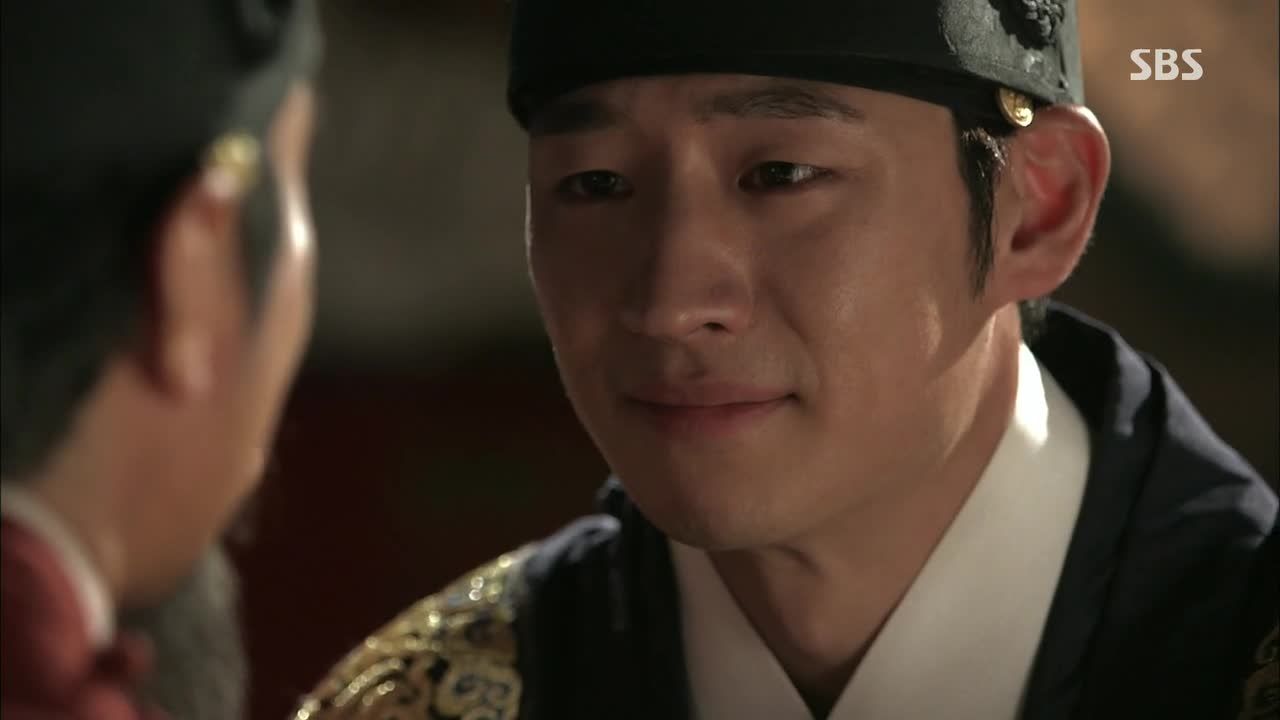
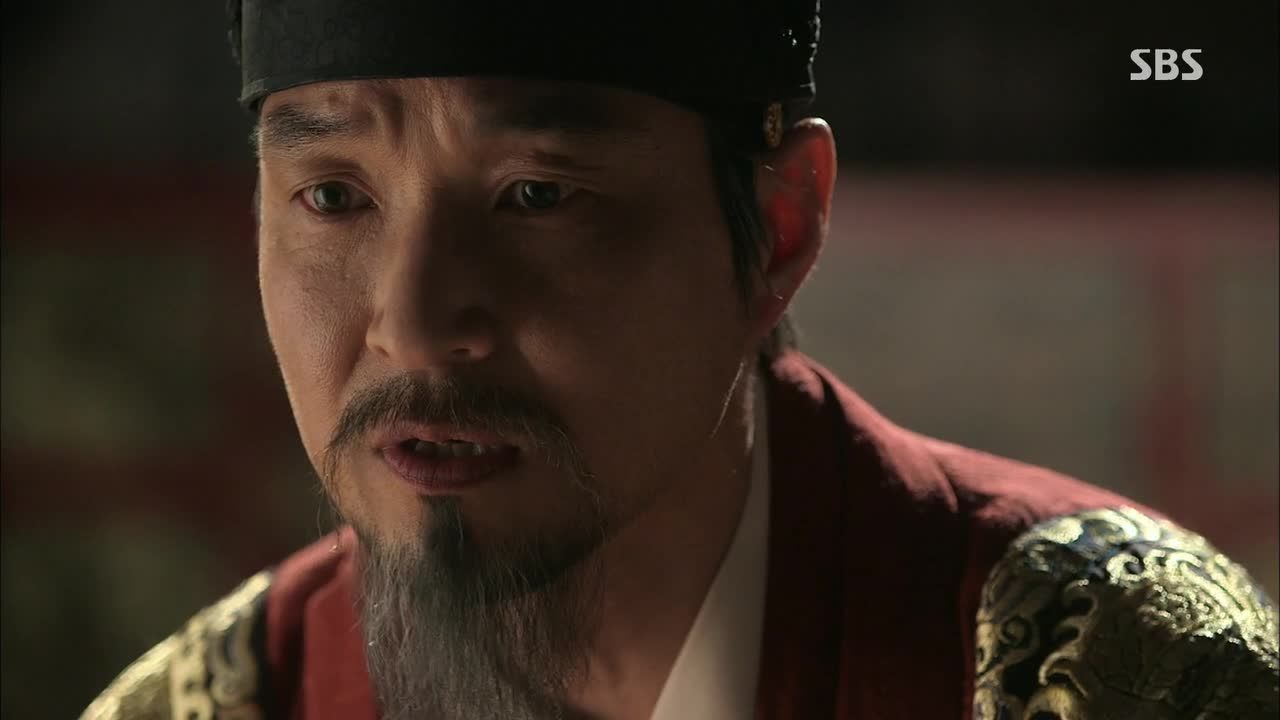
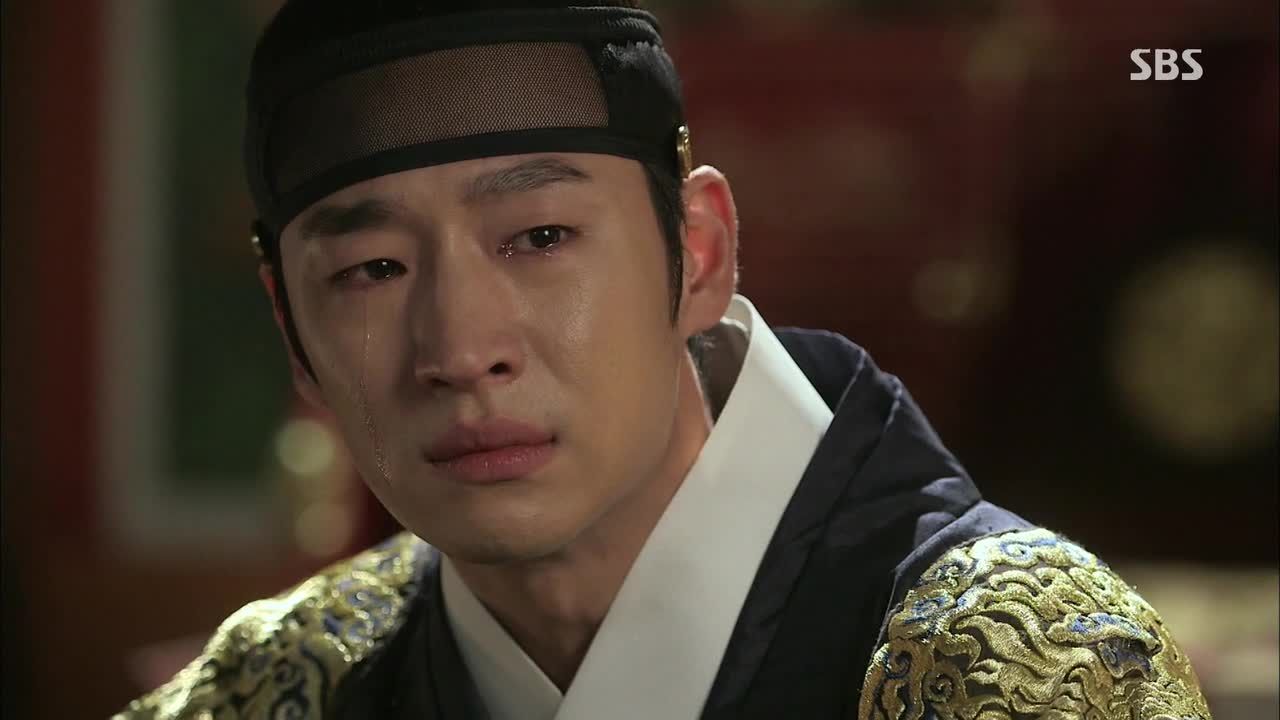
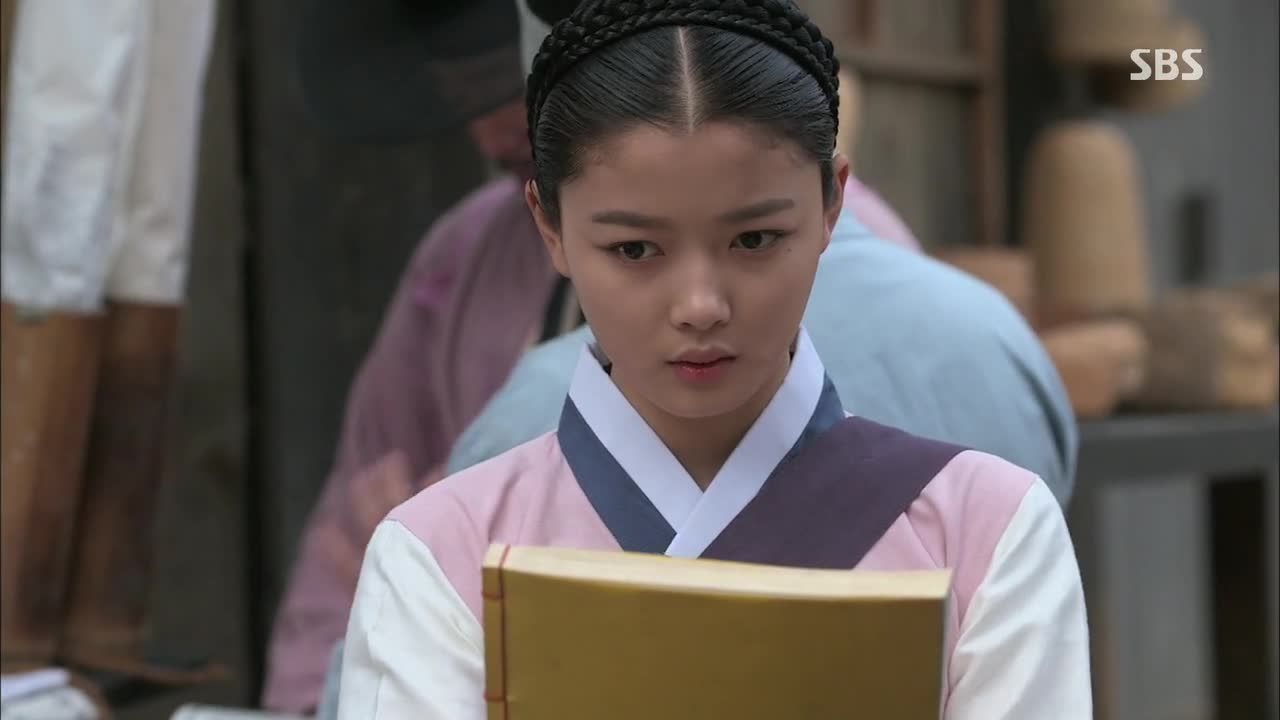
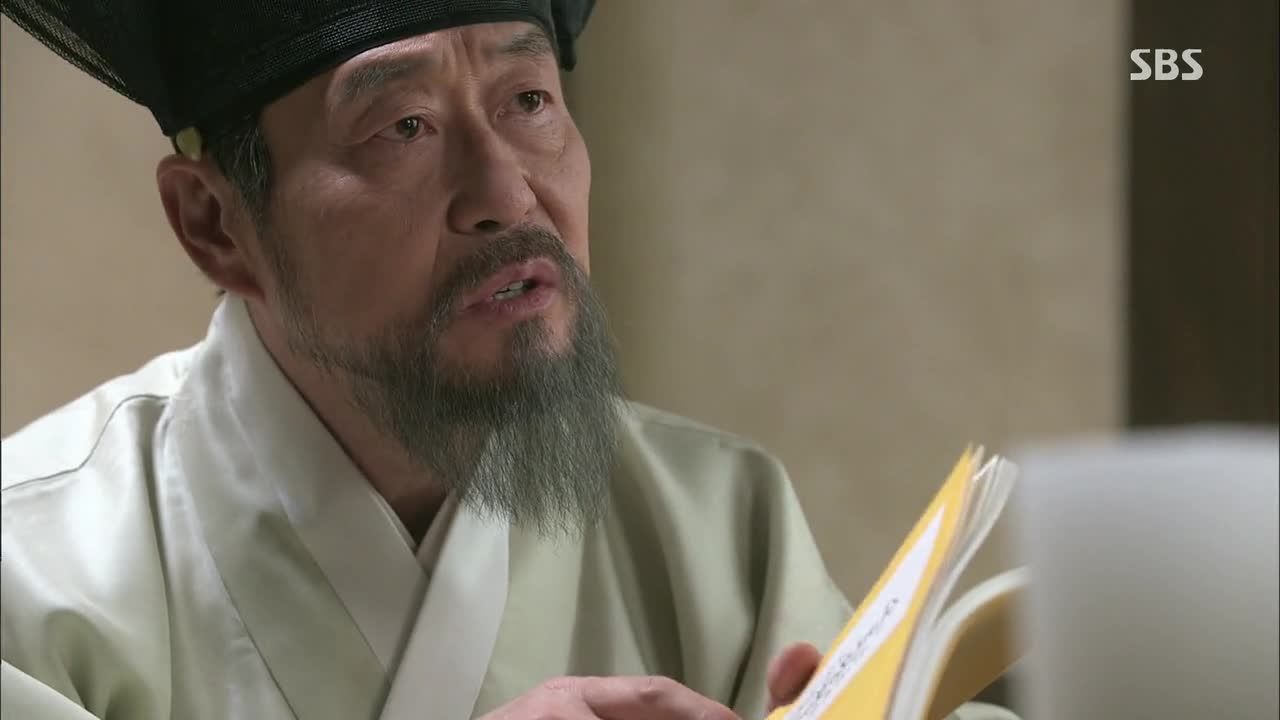
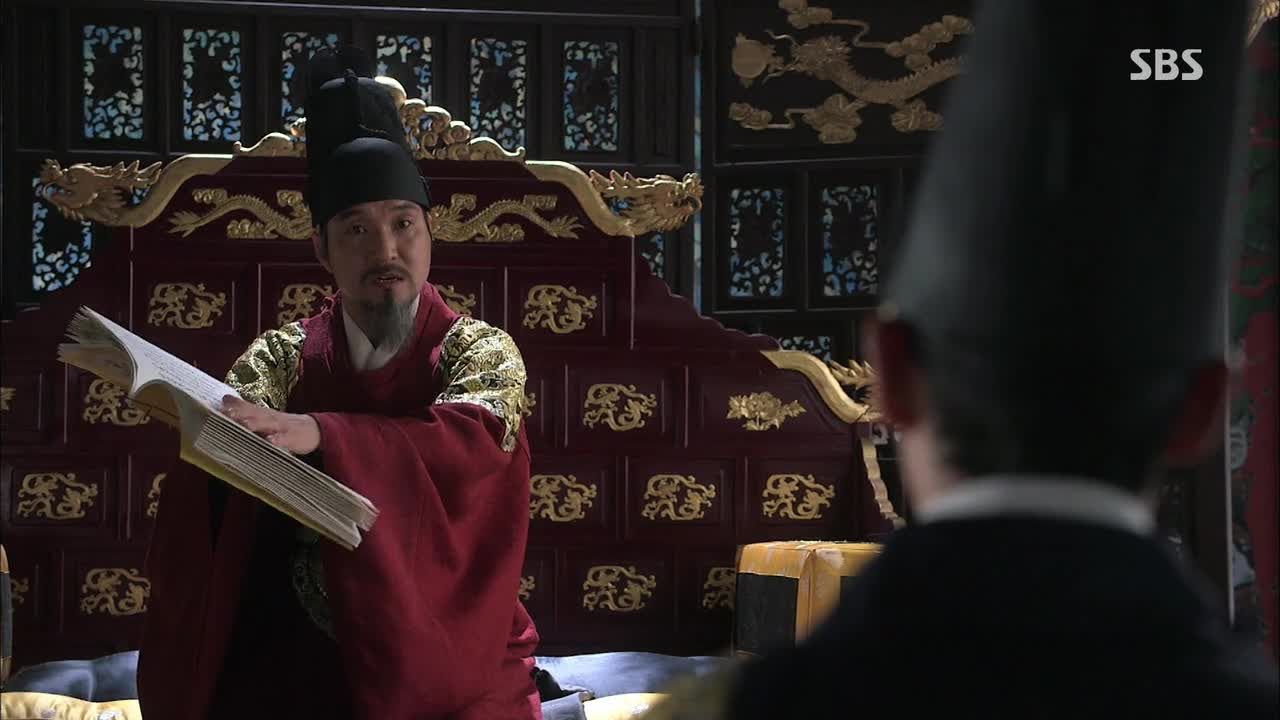
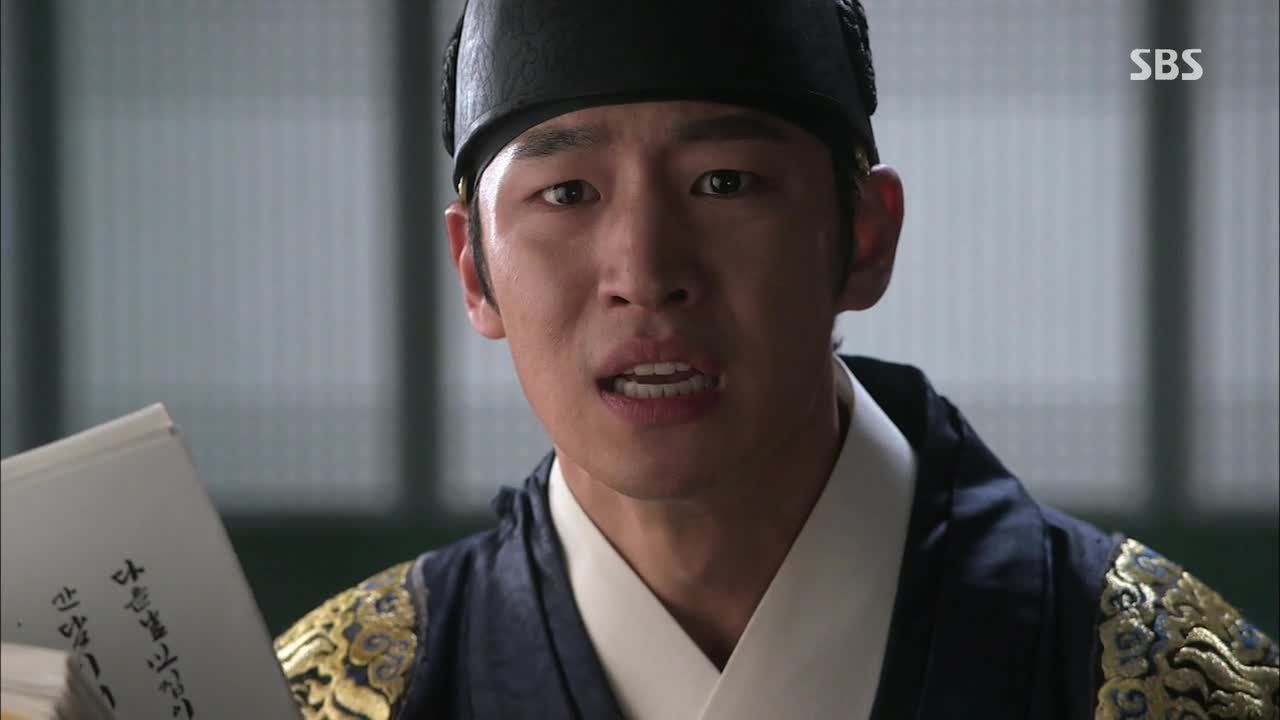
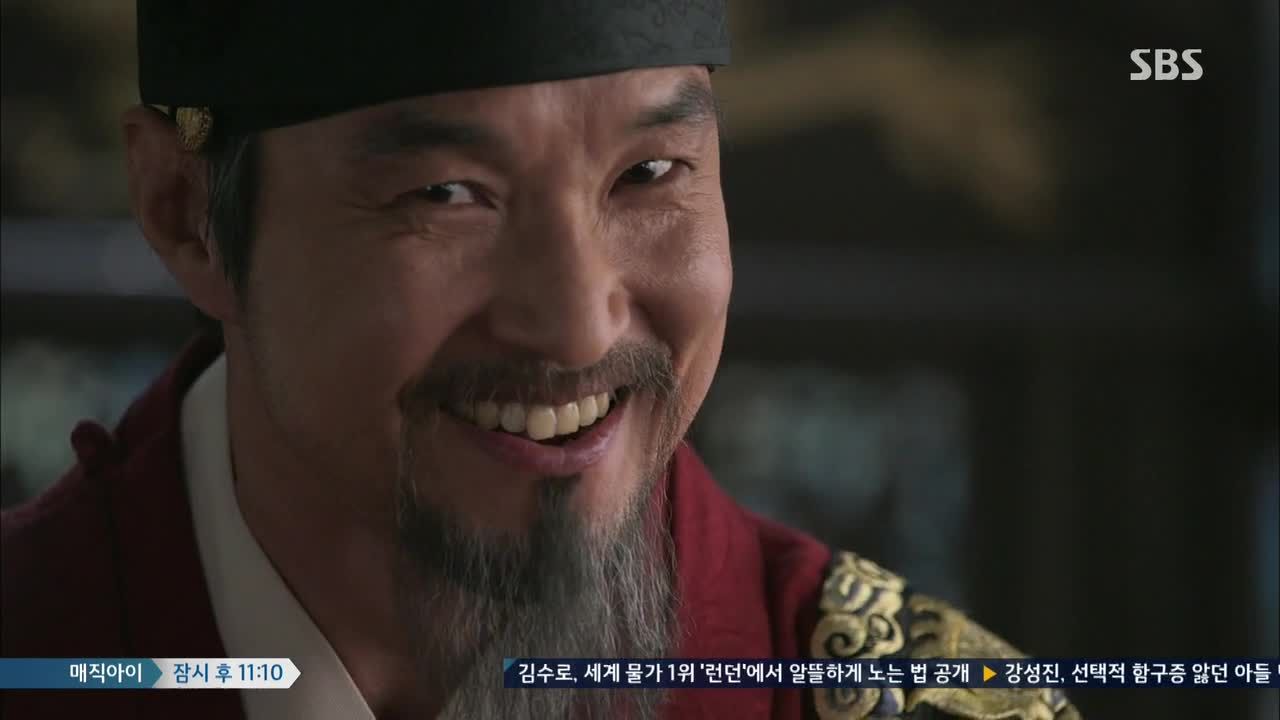
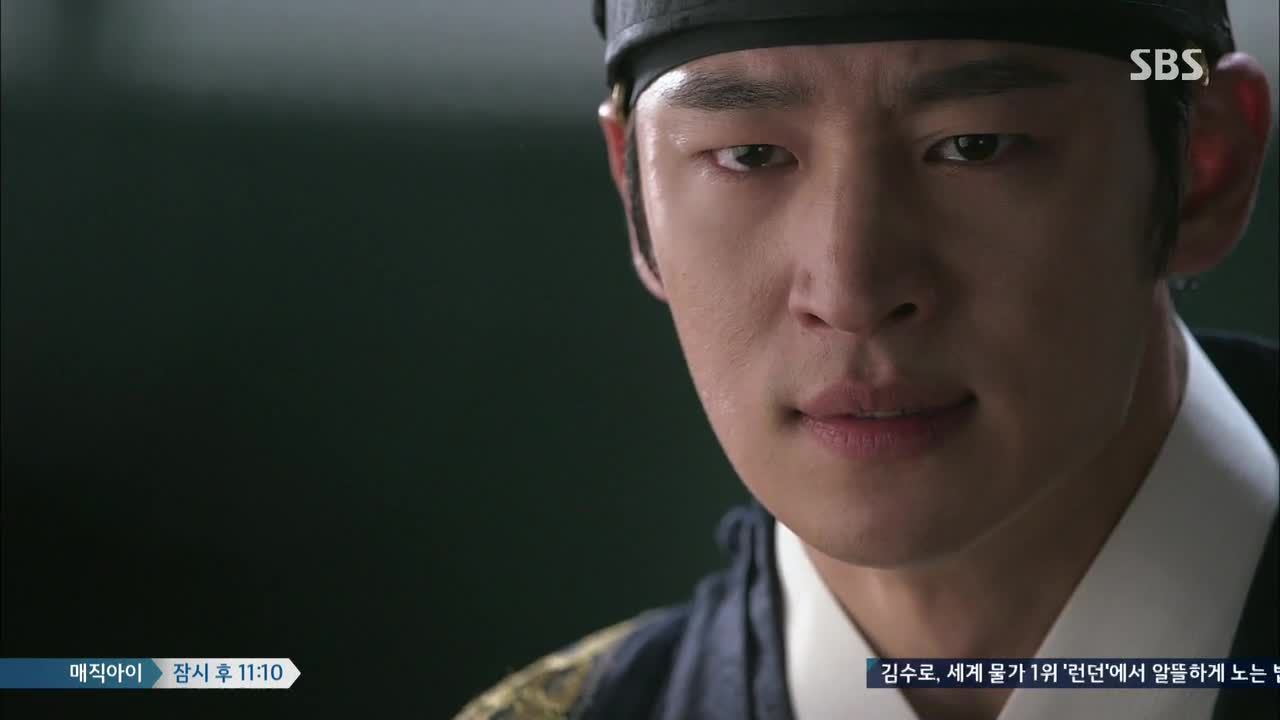
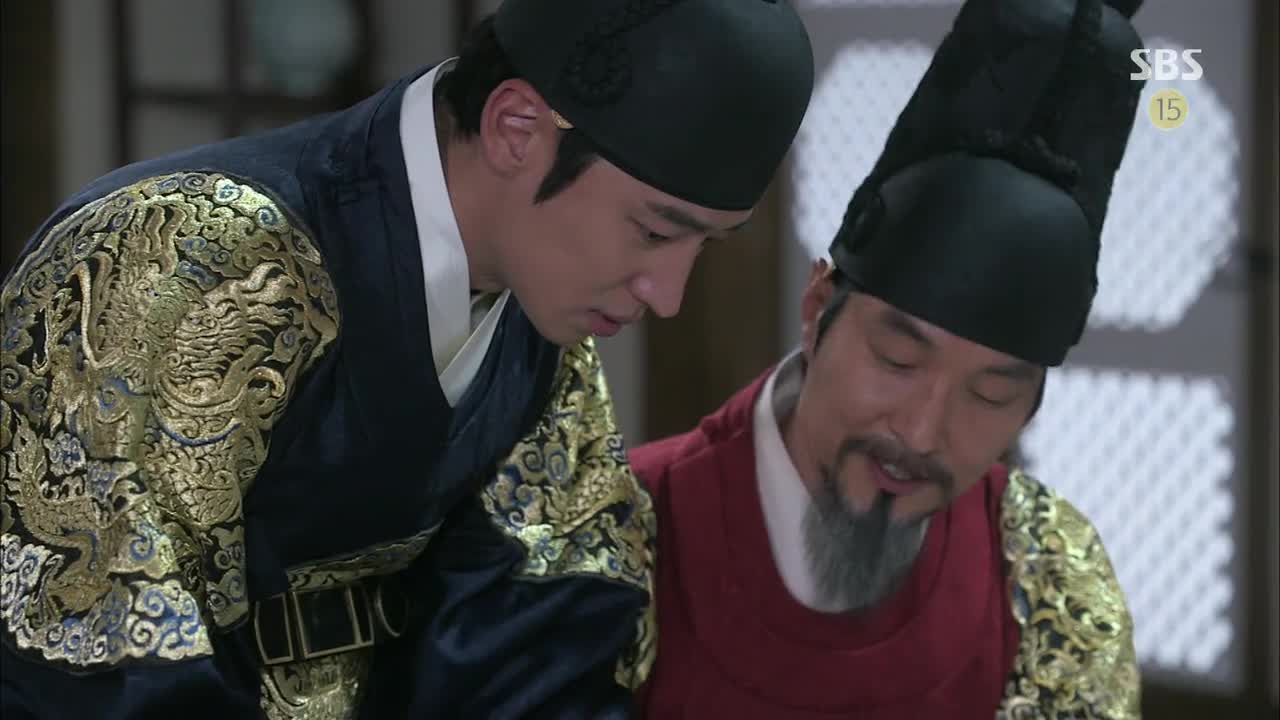
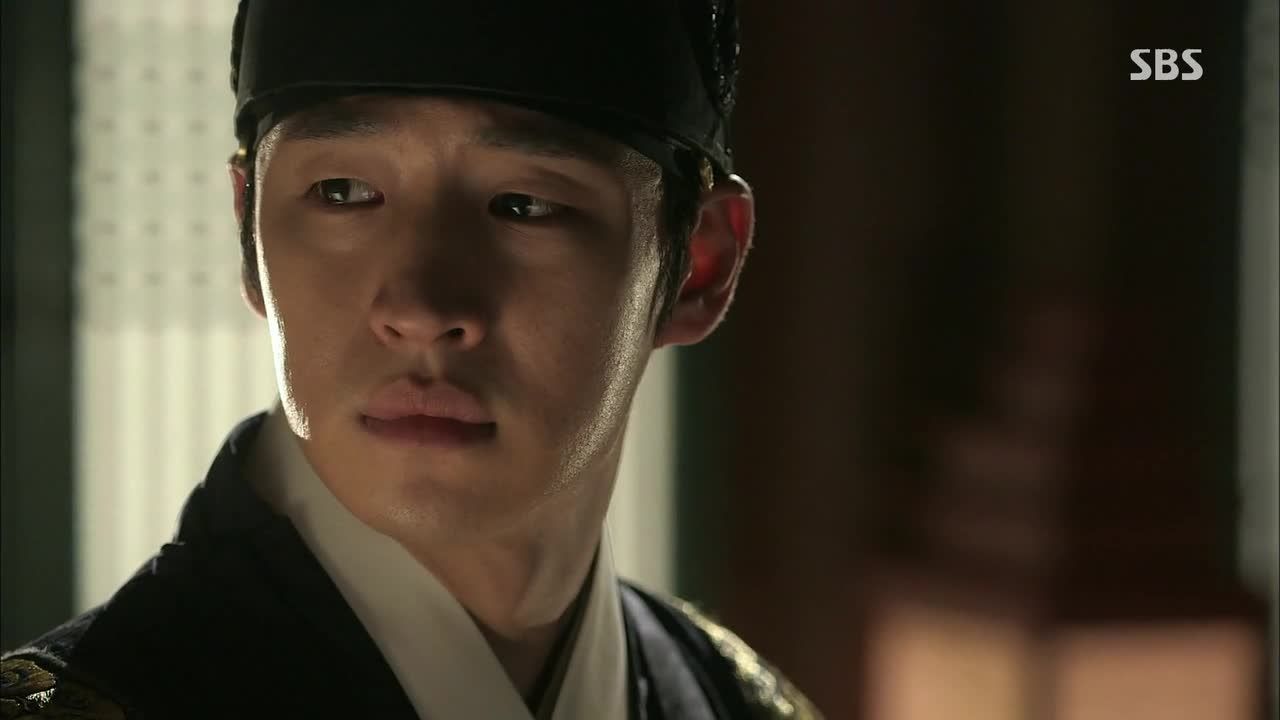
![[Beanie Review] Light Shop](https://d263ao8qih4miy.cloudfront.net/wp-content/uploads/2024/12/LightShop_reviewb.jpg)
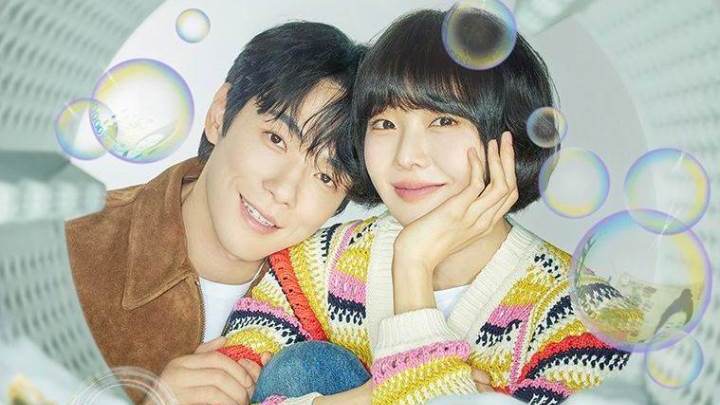







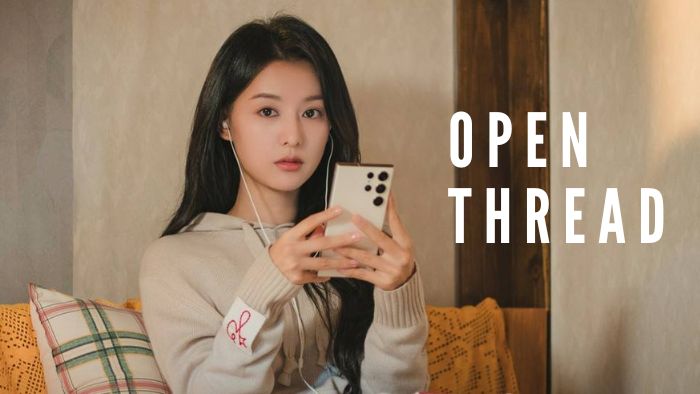
Required fields are marked *
Your email address will not be published. Required fields are marked *
1 selina
October 28, 2014 at 9:40 PM
I really am enjoying this drama and it's characters from episode to episode. The drama is not perfect by far and I really do wish they would go into Sado's historically believe insanity (LJH oppa would kill it) and at times I feel we see sparks of that insanity when he rages (the first ep when he was beating up the dude and had to be stopped by soon well dead best friend, his imagination of flipping the table, etc) but I gotta say...I CANNOT STAND THE CHARACTER OF JIDAM AND HER NANCY DREW WAYS! I don't know what it is exactly but she just feels so out of place and just there and useless. Like I mean I know she's supposed to be this holy smart sidekick our prince eventually more than friends loves (please writers don't take it there cause I really cannot get over the real actors age gap) but she's so dull and useless in comparison to the other characters. Like my Queen the princess, when she's on screen I totally connect with her emotions and feel what she feels. When she is not on screen I miss her and want more of her and smile and get all happy when she appears again. Even the Prince's Lady that has taken care of him since young and doesn't get that many scenes, makes every scene count and I am with her in all her almost motherly care and want of protection for our Prince, but JiDam, I am just not feeling her. I mean what does her character bring to the story. Her do good ways we already got with the Prince having the same at times naive beliefs, her detective skills, please the prince or any of his men can solve things like she does. I mean I know she is supposed to be smart, but she only feels that way because they make those that surround her seem so damn stupid so she can look smart (honestly I get baffled that the Prince and his men don't reach half her conclusions before she does because really now...). I don't what it is but her character just has no presence and I feel like she's been used as much as she can be in the storyline. I know she's not going anywhere but her scenes and just like...why am I being show this? I for one await the day she is killed off. I will mourn for and with the Prince but also rejoice (sorry KYJ, I think you're an okay actress but feel way out of your league in this drama with these actors). Other than this I really am enjoying the drama. Thank you for the wonderful recaps that always ads more enjoyment and insight to what has already been viewed.
Required fields are marked *
pigsnout
October 28, 2014 at 11:50 PM
I agree with you about Ji Dam, she feels too simplistic a character for such a complex story. Kim Yoo Jung is a good actress but if they were going to even hint at the Binggae aspect of the story they should have used an actress who is legally an adult.
(and no, saying "it was like that in history!" doesnt make it ok to portray a relationship with an actor literally twice her age)
Required fields are marked *
Krystal Anne
October 29, 2014 at 12:44 AM
Wow your hate for Jidam is too much and unexplainable. I think you're forgetting that if not because of her the prince won't even come this far. How can she be useless when she's all the one that found out everything. If anything she is the most smart and useful character in the drama. You're too blinded by your love for the Princess you see no reason. What did the Princess do anyway?! She's not the one who have save the Prince last time because it was Jidam who found out about Kim Muu and she's also the one who decide to find who's Muu's father is thus learning the connection w/ the Prime Minister. Which made the PM & the King pin the crime to Muu to evade their crimes.
Thank god, most SD viewers do not think like you do. Since if we're basing this to netizens comments the most well loved characters in the drama is either the King or Jidam.
Required fields are marked *
pigsnout
October 29, 2014 at 1:43 AM
"Unexplainable"? "Hate"?
She literally just explained in a great deal of detail why she feels Ji Dam doesn't fit well with the story and lacks nuance compared to other characters ( the term people often use for this kind of too-perfect character is Mary Sue).
Thank god dramabeans commenters are not slaves to netizen opinons and fans of the actors and actually express their true thoughts on a story and its execution.
Required fields are marked *
eki
October 29, 2014 at 7:26 PM
In simpler terms, selina would rather see more scenes with a great adult actress than more scenes with a great child actress.
Required fields are marked *
pam
October 29, 2014 at 7:42 AM
JD is the smart girl , common citizen , living with people , she might know this society morethan people living in Palace .
Memoir of lady H , her opinion only , she might not know
anything outside of Palace wall .
Required fields are marked *
selina
October 30, 2014 at 8:30 AM
I don't "hate" Ji Dam. I just find her character to be like I said, "just there". For me she is not as compelling, nuanced, or fleshed out as the other characters of the drama. She lacks depth and overall purpose I feel the other characters have. I can see how all the other characters are driving forces and move our narrative along but with Ji Dam it's just not there for me. To me, if you peel back the layers of all the other characters within the drama you get more than what was presented to you at face value. However with Ji Dam I feel what you see is what you get. There is nothing more than the light in the dark tunnel of the prince's life who helps to solve the case.
I need the writers flesh out her character and have her be/mean more because a.) we already have a few smart, good, loyal, team prince people who help him solve the case in the prince's eunuch and adviser Chae b.) the big mystery that Ji Dam had been helping to solve has been solved. That arc of the story is finished with. Now what do the writer's do with her character when thus far that had been her main purpose? I feel she is less than the sum of her parts. I know she's supposed to be important but I don't, feel, see, or understand her importance. It doesn't come through in the story telling for me and I think that comes from both the writing and the acting (more so writing than acting).
I don't "hate" Ji Dam because I like the princess. I want to like Ji Dam because I like the princess. I see what the writers have done with that character and hope they can bring the same character volume to Ji Dam. The princess feels like a whole person to me. Even when she is not on screen i feel she is doing something -taking care of the prince, planning with her father, trying to keep her son next in line, trying to stay informed on the king and prince's thinking and what would be best for her and her people, etc-. When Ji Dam is not on screen I wonder what she does...without the prince who is she and why is she significant?
Required fields are marked *
2 maryxiah
October 29, 2014 at 1:22 AM
Contrary to popular opinion, I have no problem with the pairing of Ji Dam and Sun as long as it stays faithful to the history interpretation (the memoirs of Lady Hyegyeong). It may have been a mistake to cast Kim Yoo Jung to star opposite Lee Je Hoon, but I feel like it's a waste of time to cry over the spilled milk. What this drama need to do is to finish its story telling despite the age gap drama.
I'm intrigued how the history painted Sado as the raving lunatic over the course of time due to the lack of love and attention from his parents, while in the drama's timeline he's perfectly fine. This was all told from Princess Hyegyeong's perspective. I'm wondering how she'd explain it in due time or maybe Sun will be driven into madness by his father. This is the biggest pull the drama has on me.
Nevertheless, I'm also liking the subtle way the writer trying to link Ji Dam and Sun. They're not dramatically in love as the usual romance is in kdramaland, but they started out small and the fact that they both care enough about each other at the moment warms my heart. I can't wait to see how their relationship evolve significantly. I also like how Sun slowly warms up to his wife because according to the memoir of Lady Hyegyeong, Sado was a really good guy had he not been driven to madness by his father's lack of favor.
Look forward to more episodes to come.
Required fields are marked *
3 sunnyl
October 29, 2014 at 4:21 AM
Thanks for recap! Such a great drama. I am amazed what they did here with this dark portion of history (except Ji Dam story, well I don't know if it is because of actress being too young).
Required fields are marked *
4 dkaoru
October 29, 2014 at 7:19 AM
I wish this is fantasy sageuk so the writers could come up with an alternate ending in which the king admits his misdeeds in the past, step down and entrust his reforms for the people to his son, and they all live happily ever after.
Required fields are marked *
pam
October 29, 2014 at 7:37 AM
agree
Required fields are marked *
5 Rahiyah
October 29, 2014 at 10:40 AM
If you look at the characters ages: Ji Dam and Sun are only 5 years apart. Ji Dam is 15 where as Sun is 20. In those times it was perfectly OK for them to marry or for Ji Dan to be his consort. In those time, children would be married at even younger ages. Look at Sun child San, he he was only 17 when San was born. So, I really don't know why all the concern about their ages.
I like Ji Dam's character, I'm a huge fan of Nancy Drew detective series and looks like Sun loves mystery novels which is why her character makes a lot of since and why he initially is interested in her as a fellow mystery buff. I too like the subtle way the writer and director has paired these two. I'm waiting to see how their relationship progresses.
Required fields are marked *
6 Carla
October 29, 2014 at 2:48 PM
In my opinion! I love it Jidam and CP! They are very Cute together ❤️❤️❤️
Required fields are marked *
7 hartofseeker
October 29, 2014 at 6:22 PM
As I was watching the opening scene-- I could only think/lament of one thing: why couldn't have Yeongjo actually trusted Seon EARLIER and told him the story behind his coronation before all this insanity happened? It breaks my heart that the only time he thought letting Seon in to know what his thoughts were was the time he's planning on using this truth to test/manipulate Seon. But that's how convoluted/defensive Yeongjo is-- everything in his interaction with Seon is reactive. He wanted Seon to react to the murmuring of the Maengi by defending him when honestly, I think Seon WOULD try to approach Yeongjo and be "on his side" in the matter in a more direct way if Yeongjo told him this story long ago.
The extreme irony of the circumstances of these heartfelt, ideal (dreamlike) conversations-- how a "normal" father and son should talk about their hopes, dreams and woes-- just friggin slays me
Required fields are marked *
8 dtdt
October 29, 2014 at 10:27 PM
This drama is boring, I hate that I can not see the main actress but instead the whole bunch of old guys. It seems they just use her to lure the viewers. I would drop tis drama long ago if the main actress is not in this drama. For people saying she can't act for "heavy" story, common, the writer does not give her anything thing to act...
Required fields are marked *
9 dtdt
October 29, 2014 at 10:31 PM
OK this is drama and not historical story telling, let the prince be saved by the girl while the world thinks that he was dead.
Required fields are marked *
Carla
October 31, 2014 at 11:29 PM
I do not know if I think like you, but I agree on something. I do not like that in the last 4 chapters, I have not seen Jidam for 10 minutes (of all). I think she deserves a chance to appear on screen more.
Required fields are marked *
10 thursdaynexxt
October 30, 2014 at 3:40 AM
Yeongjo's push-and-pull tactics were absolutely riveting again, as was the father-son dynamic.
Interesting how they also threw into the mix the contrasting perspectives of having royal siblings (sibling rivalry can be deadly when everyone wants the throne for themselves, or suspects you of doing the same) vs being the only direct royal heir (parent-child relationships are screwed up); and also the effect of growing up inside the palace vs outside it.
As for the maengui - I thought one piece of paper was wreaking this much havoc, and then they found a whole book and decided to copy it!!
Aargh, I feel like Yeongjo's the crazy one, not Sun...
Required fields are marked *